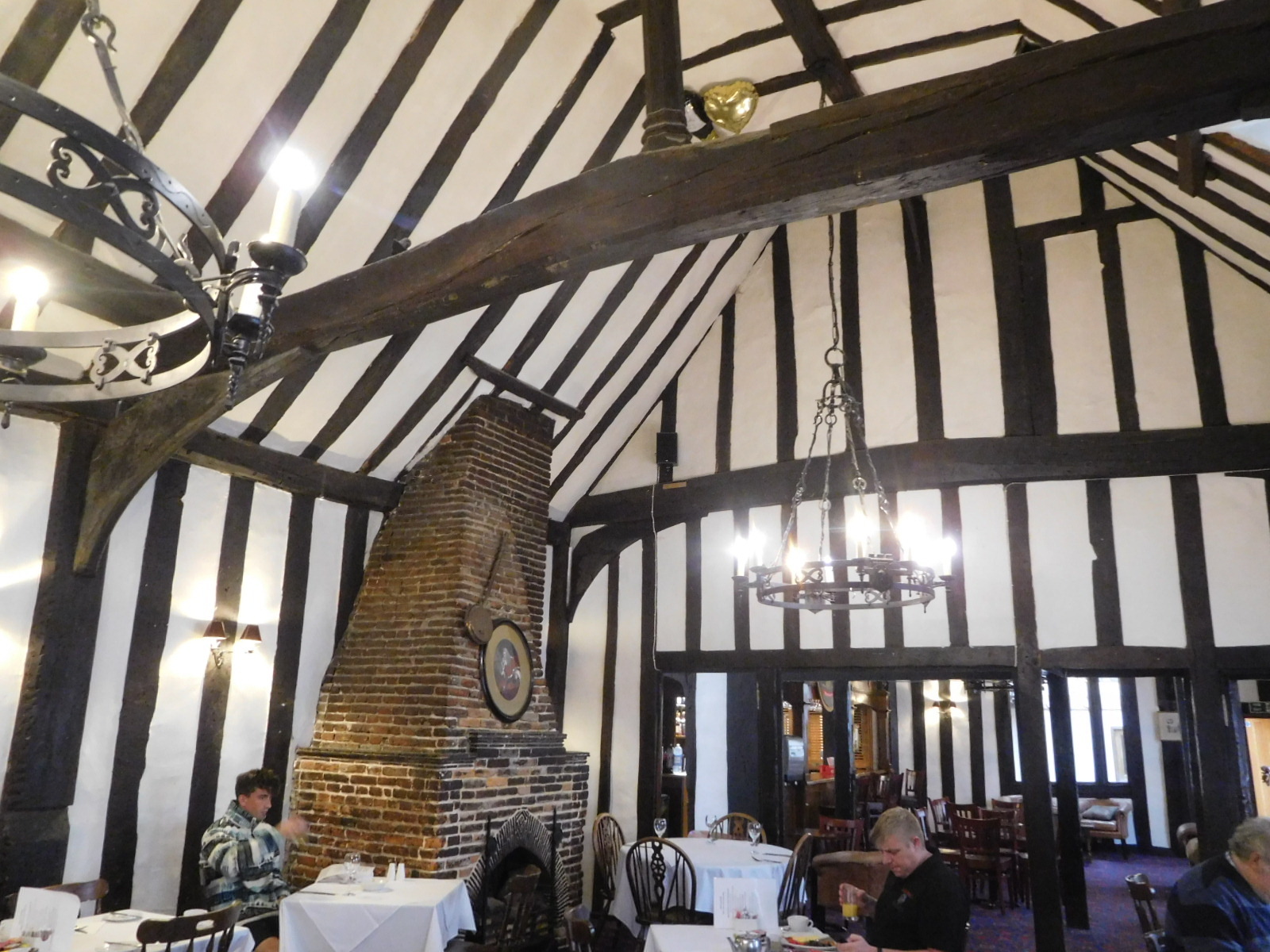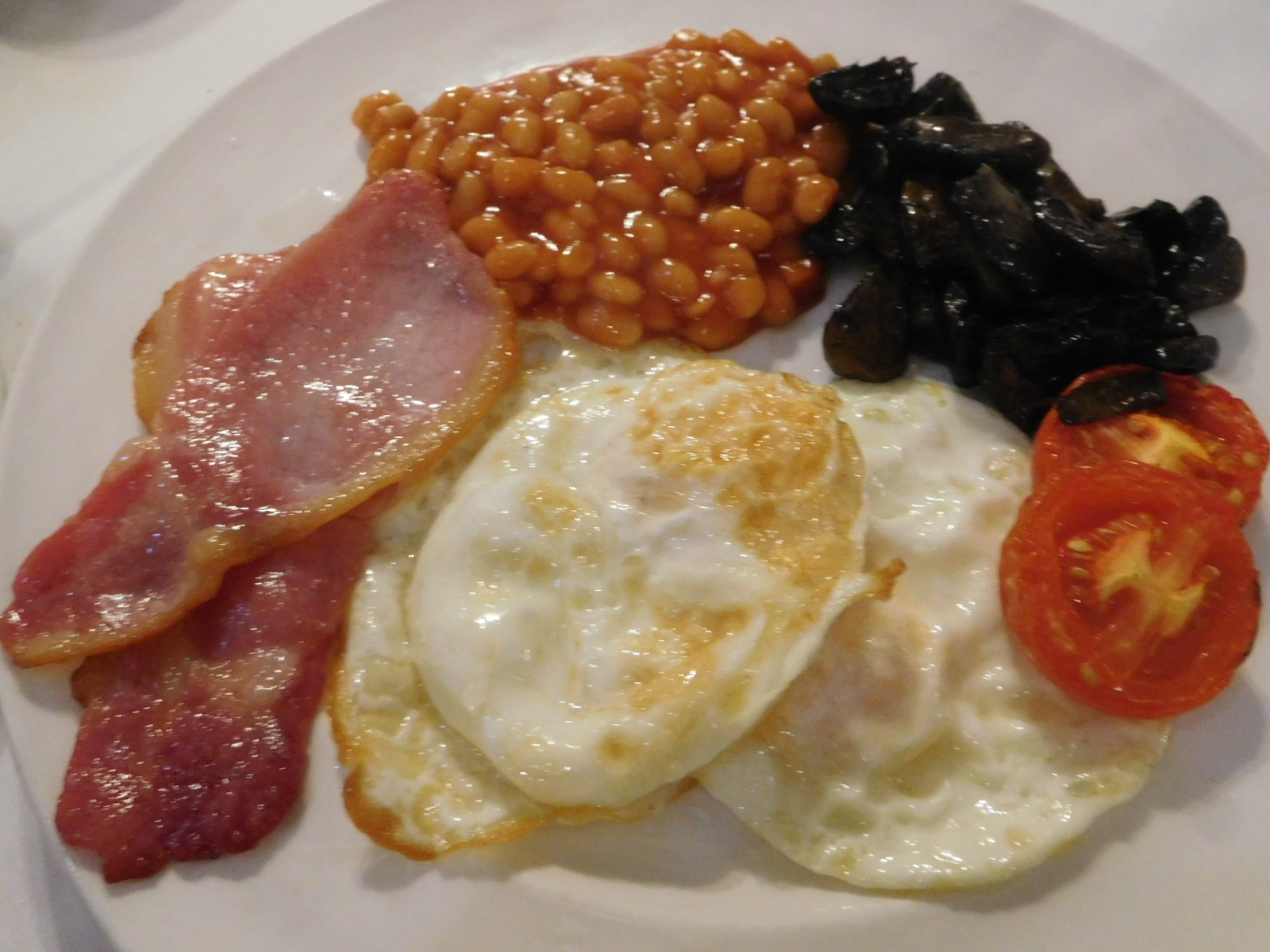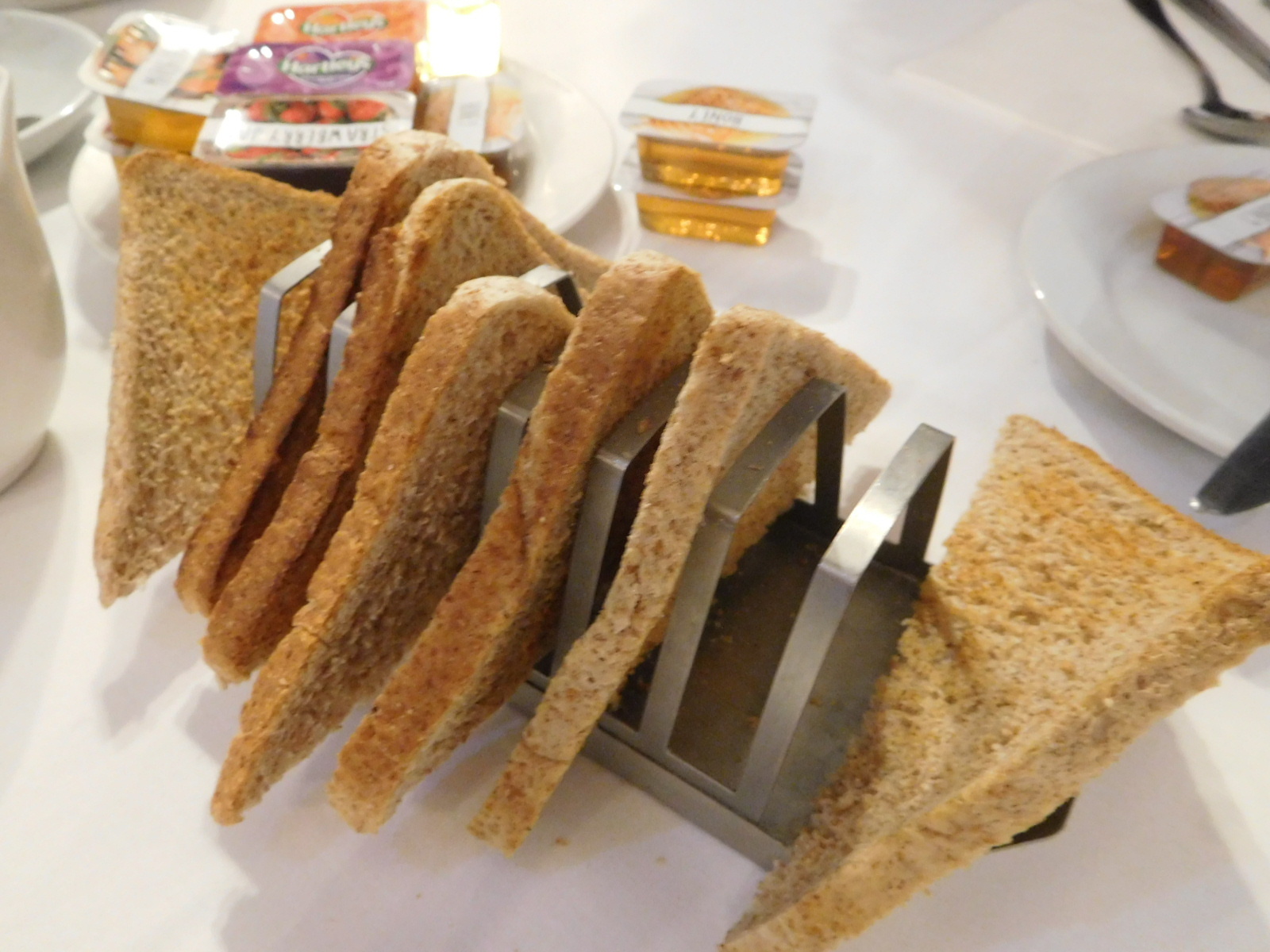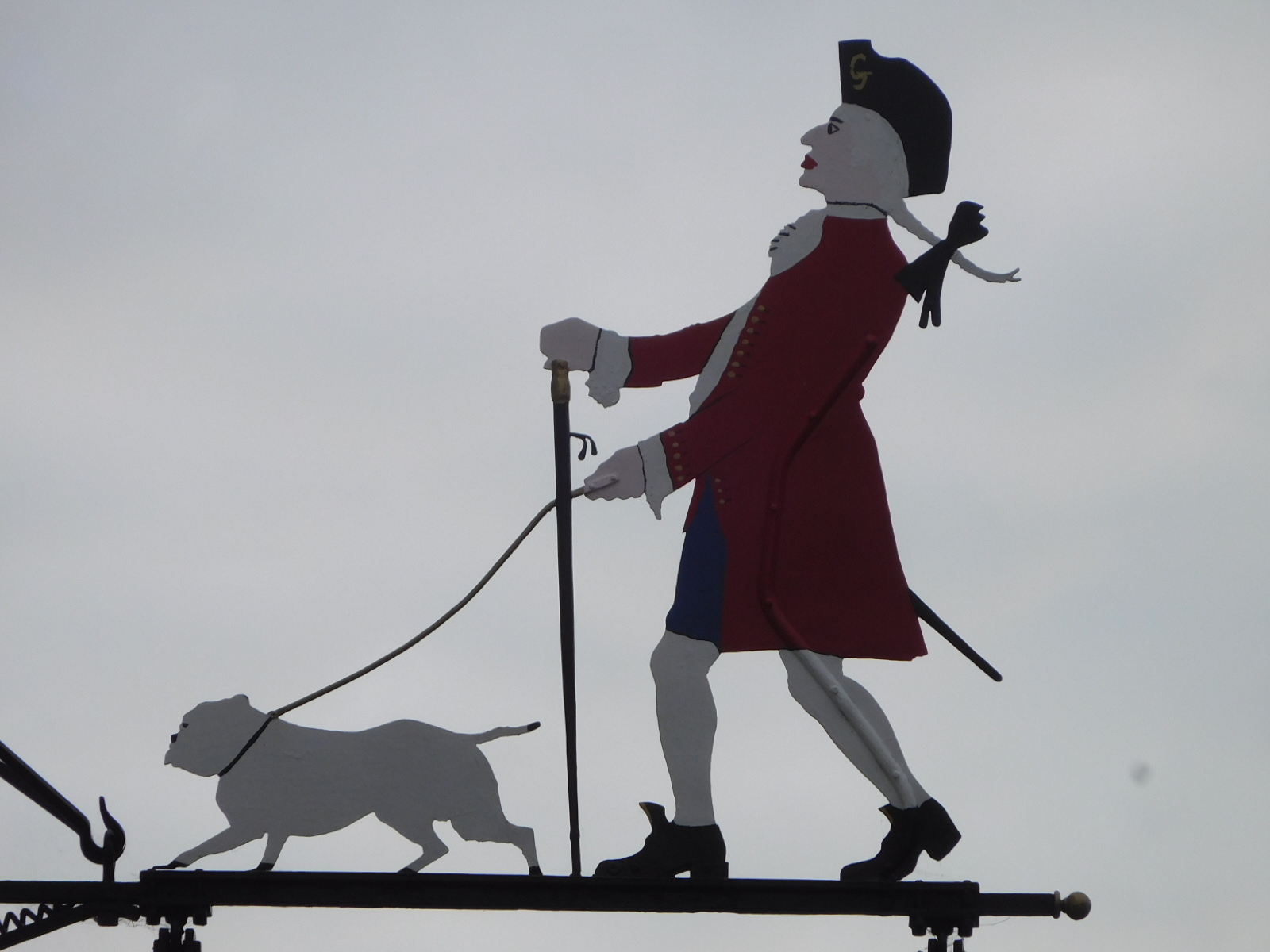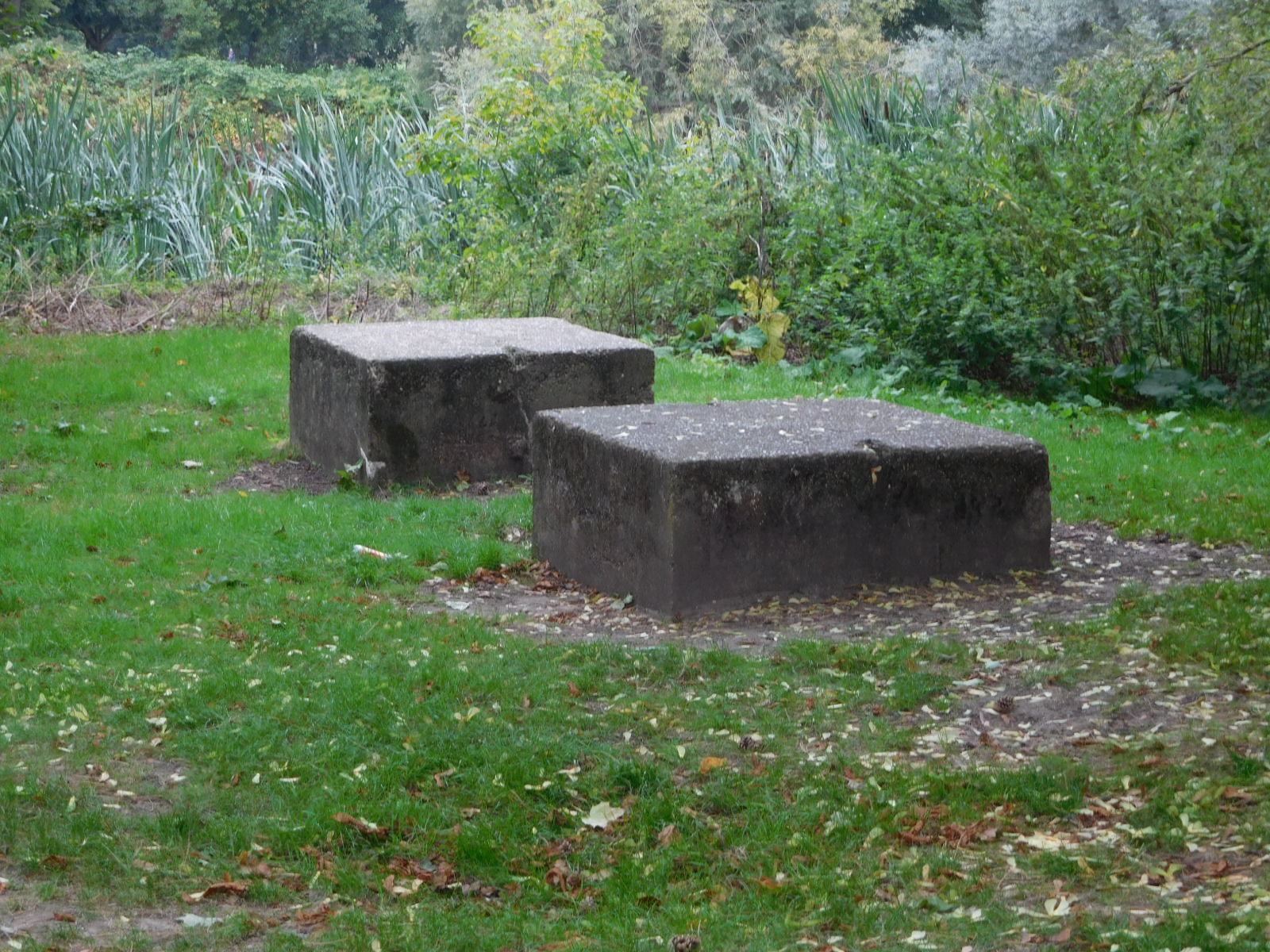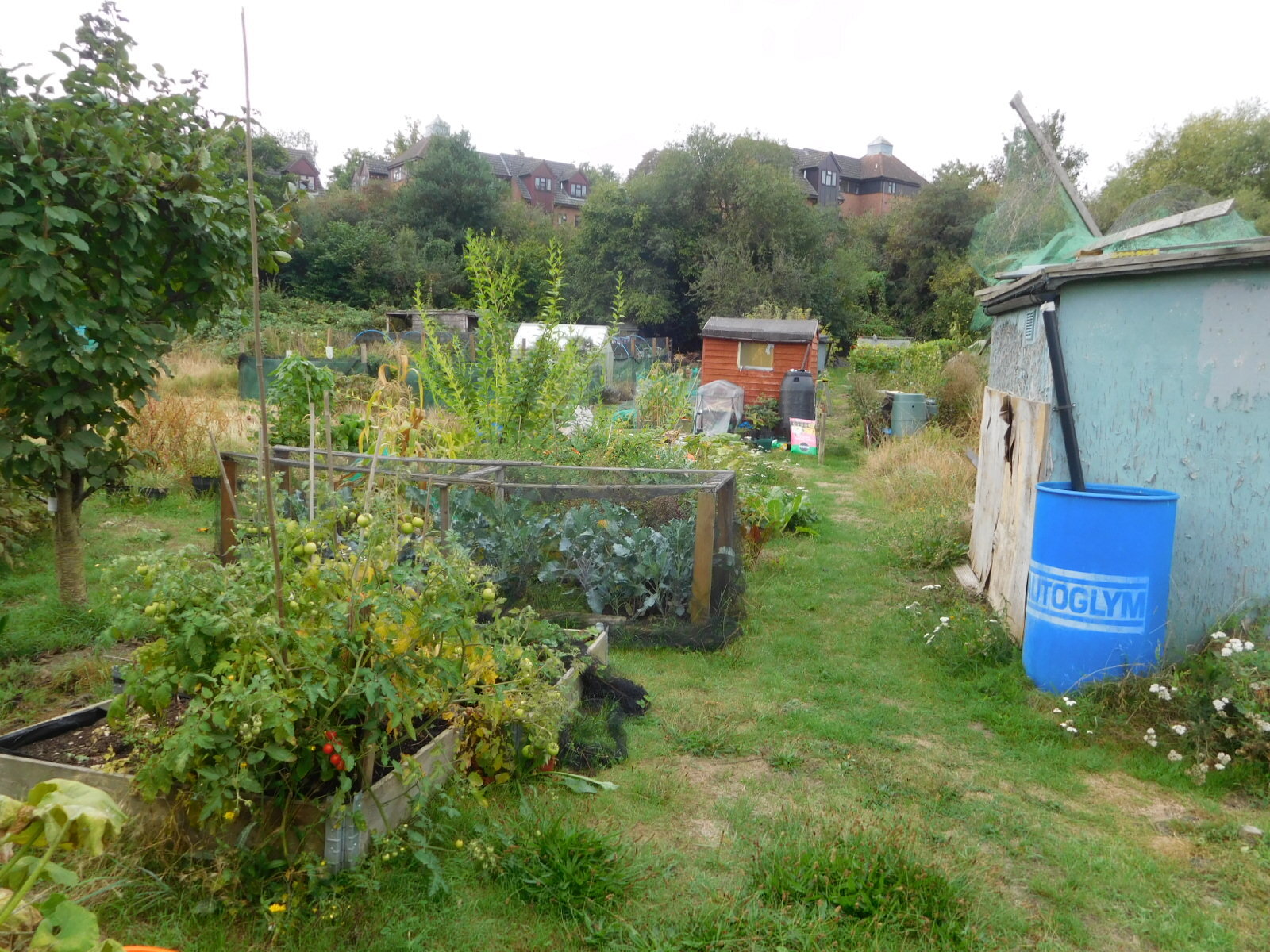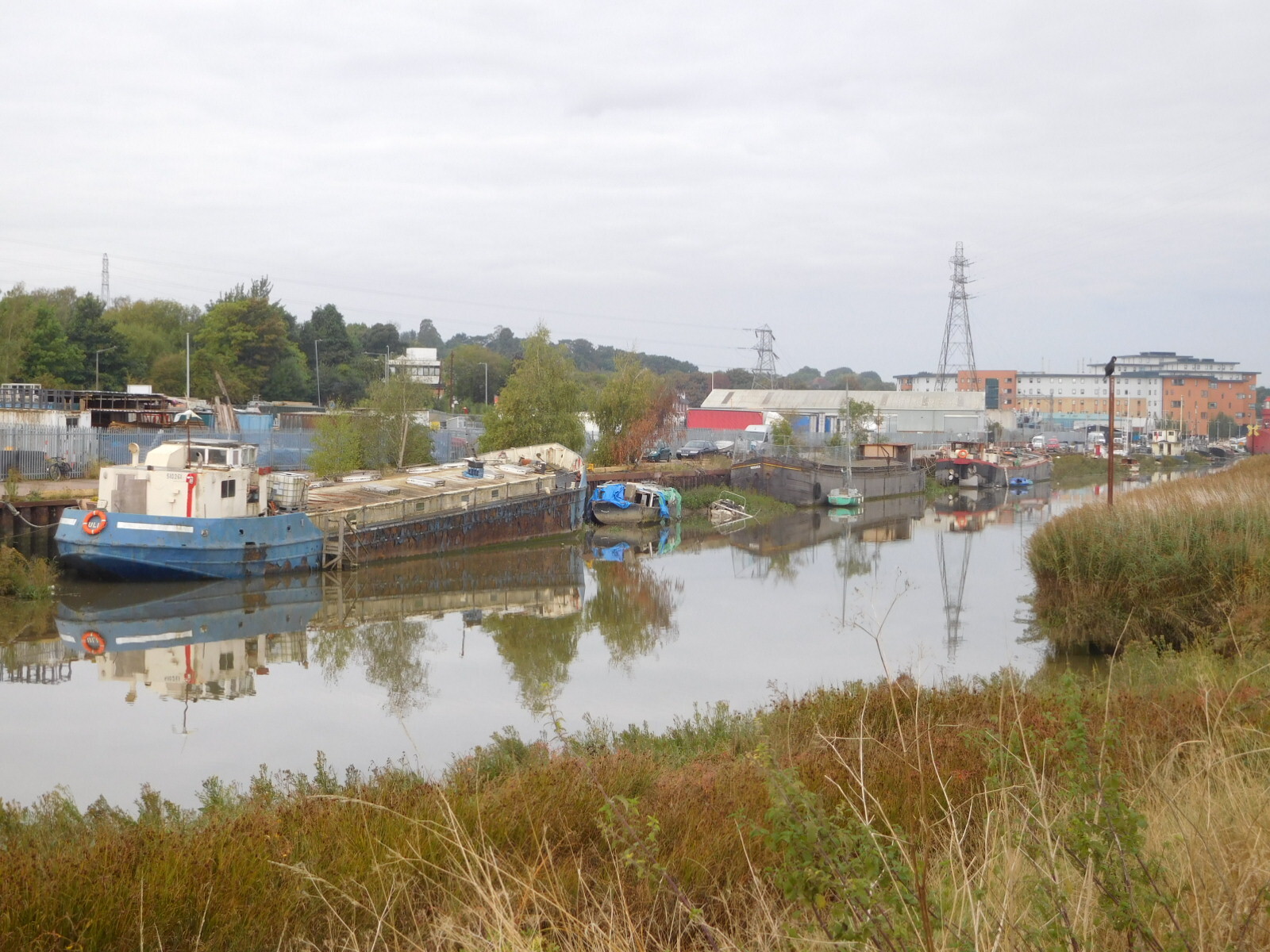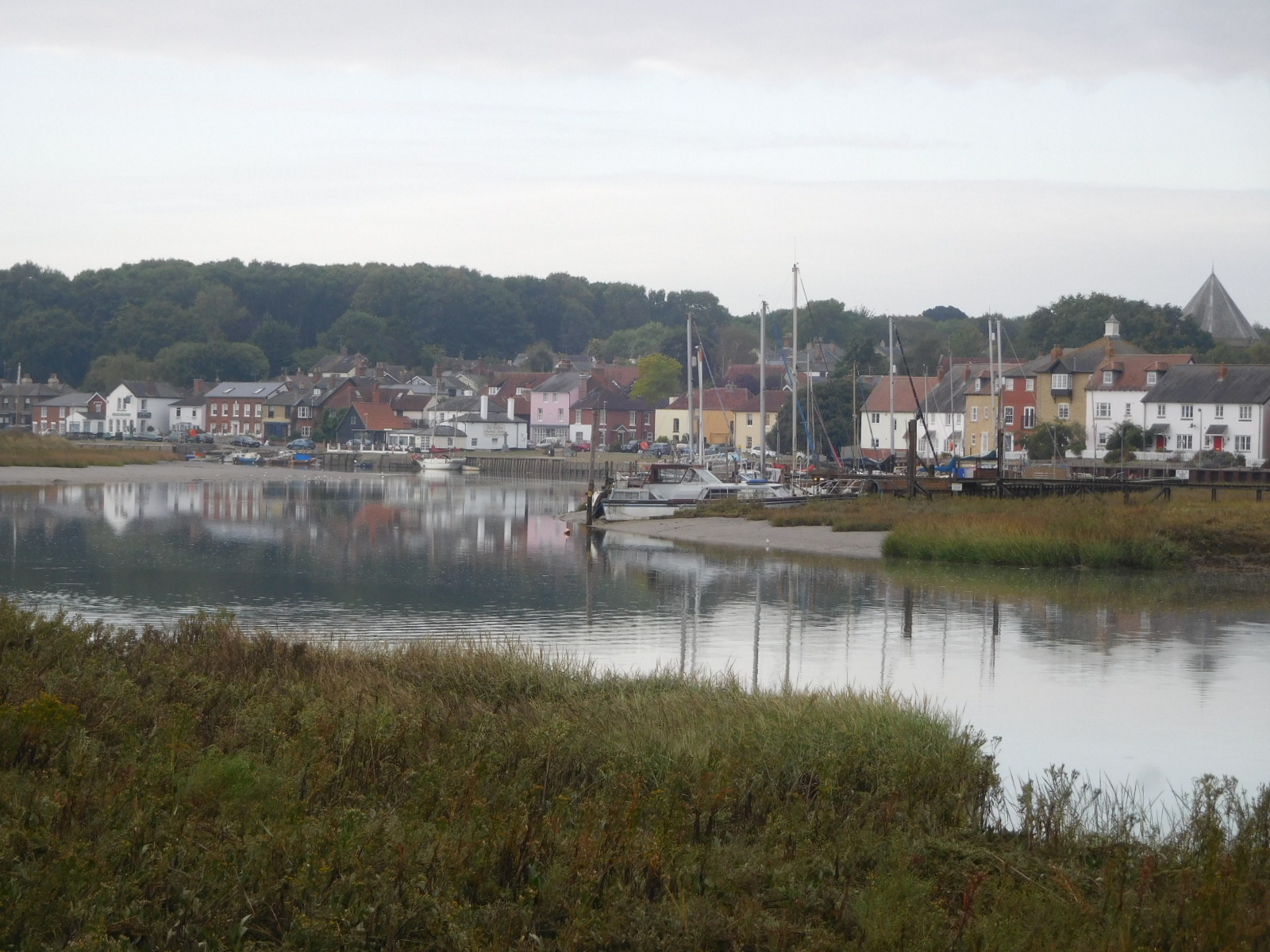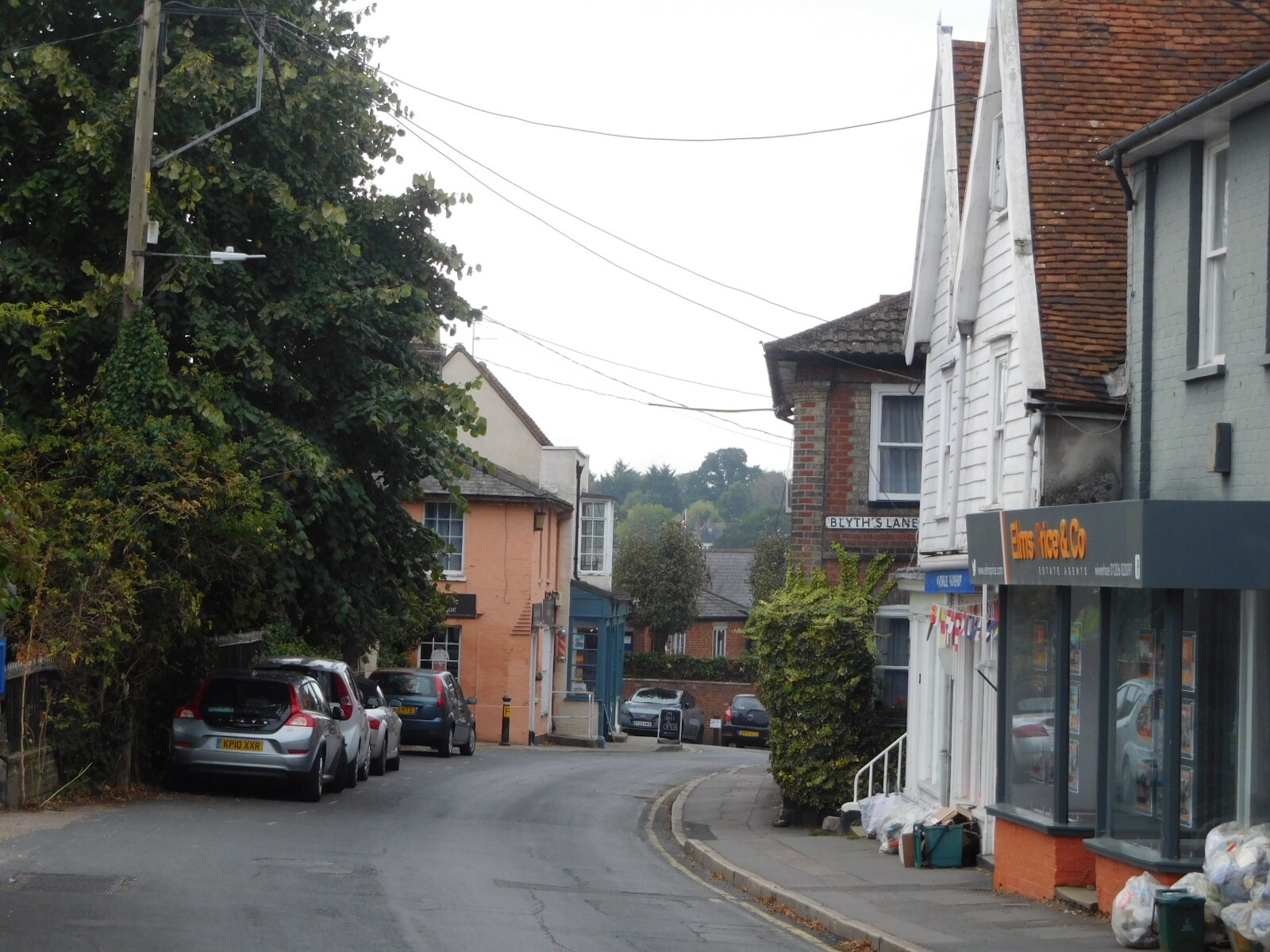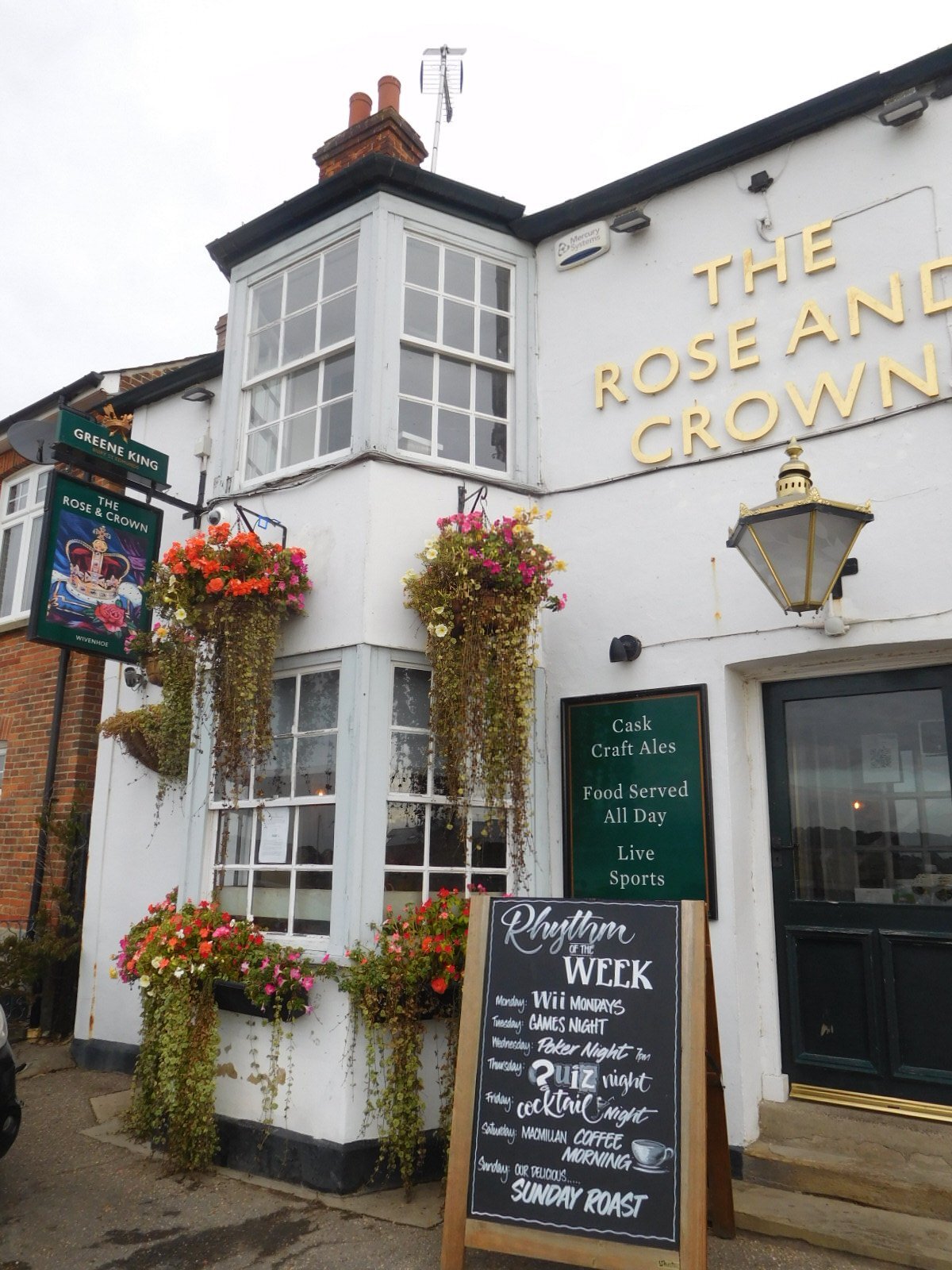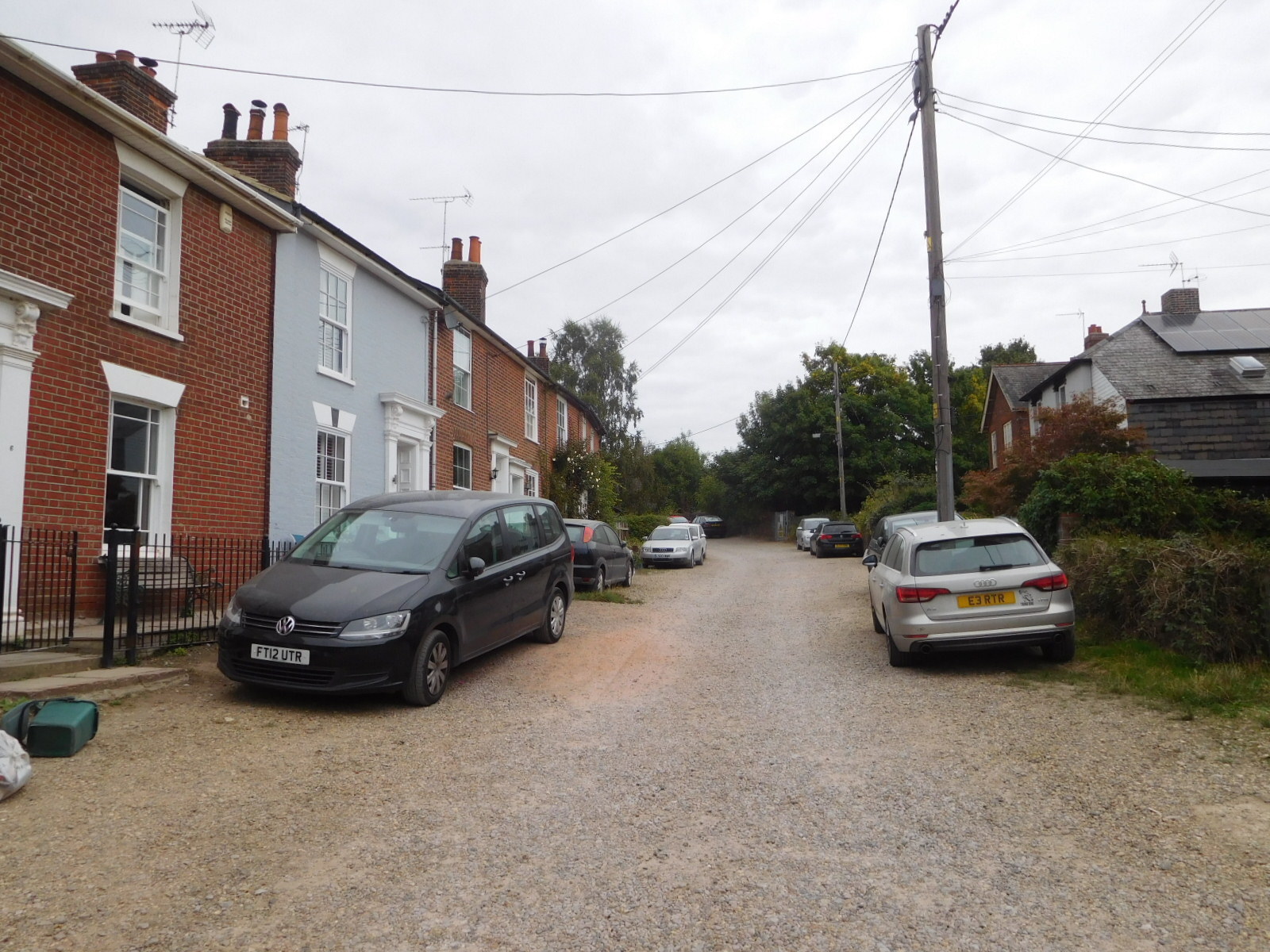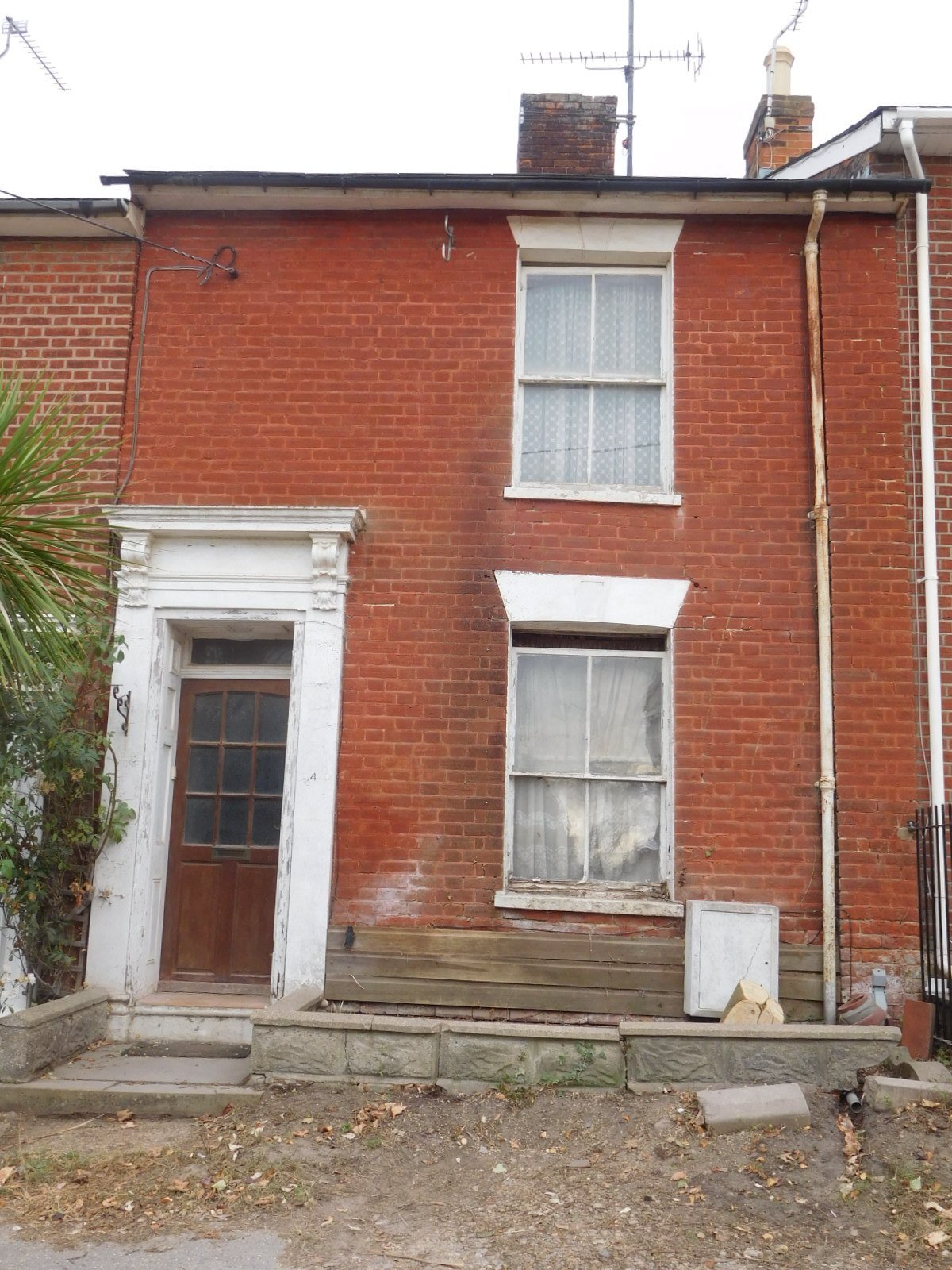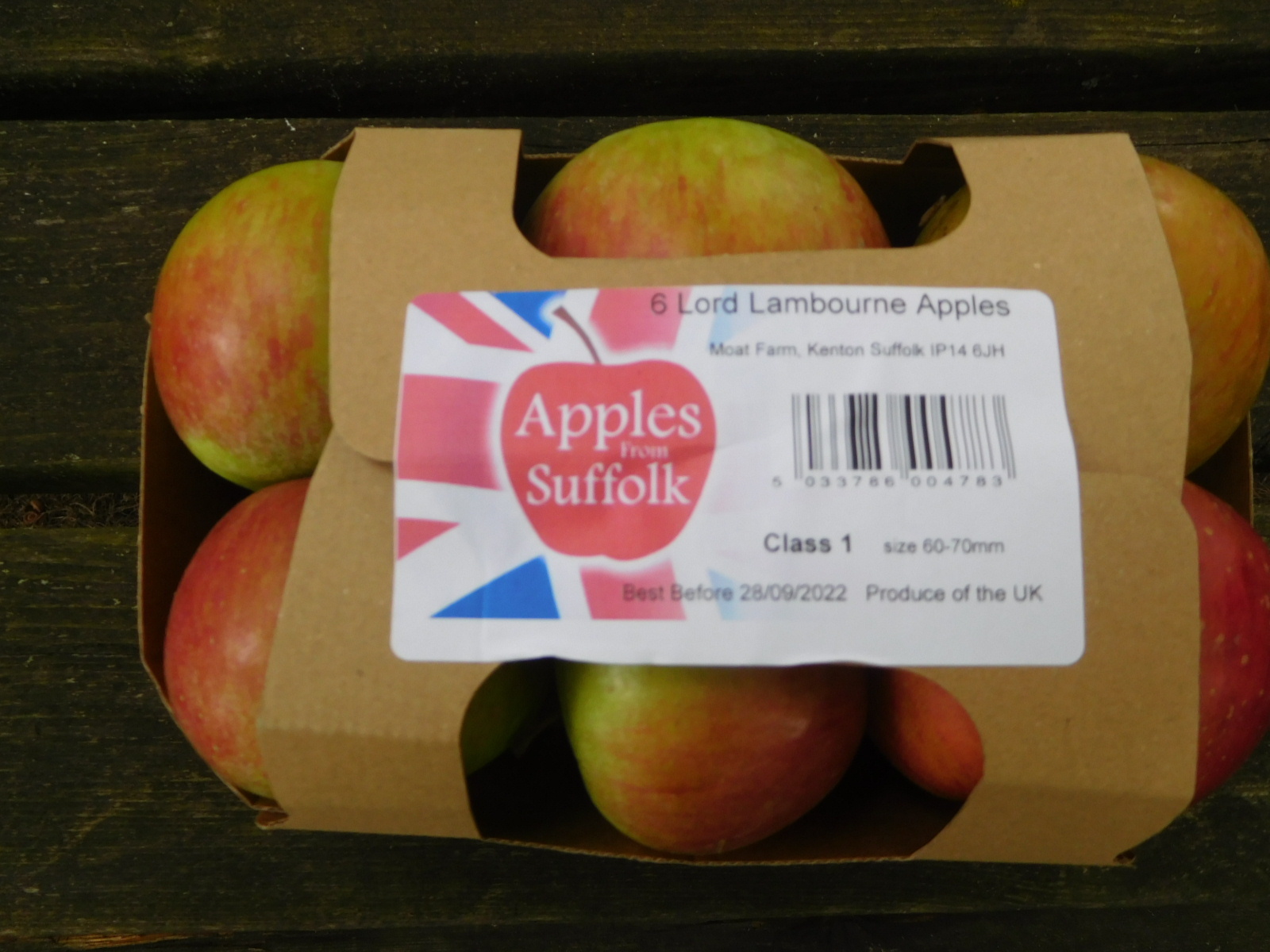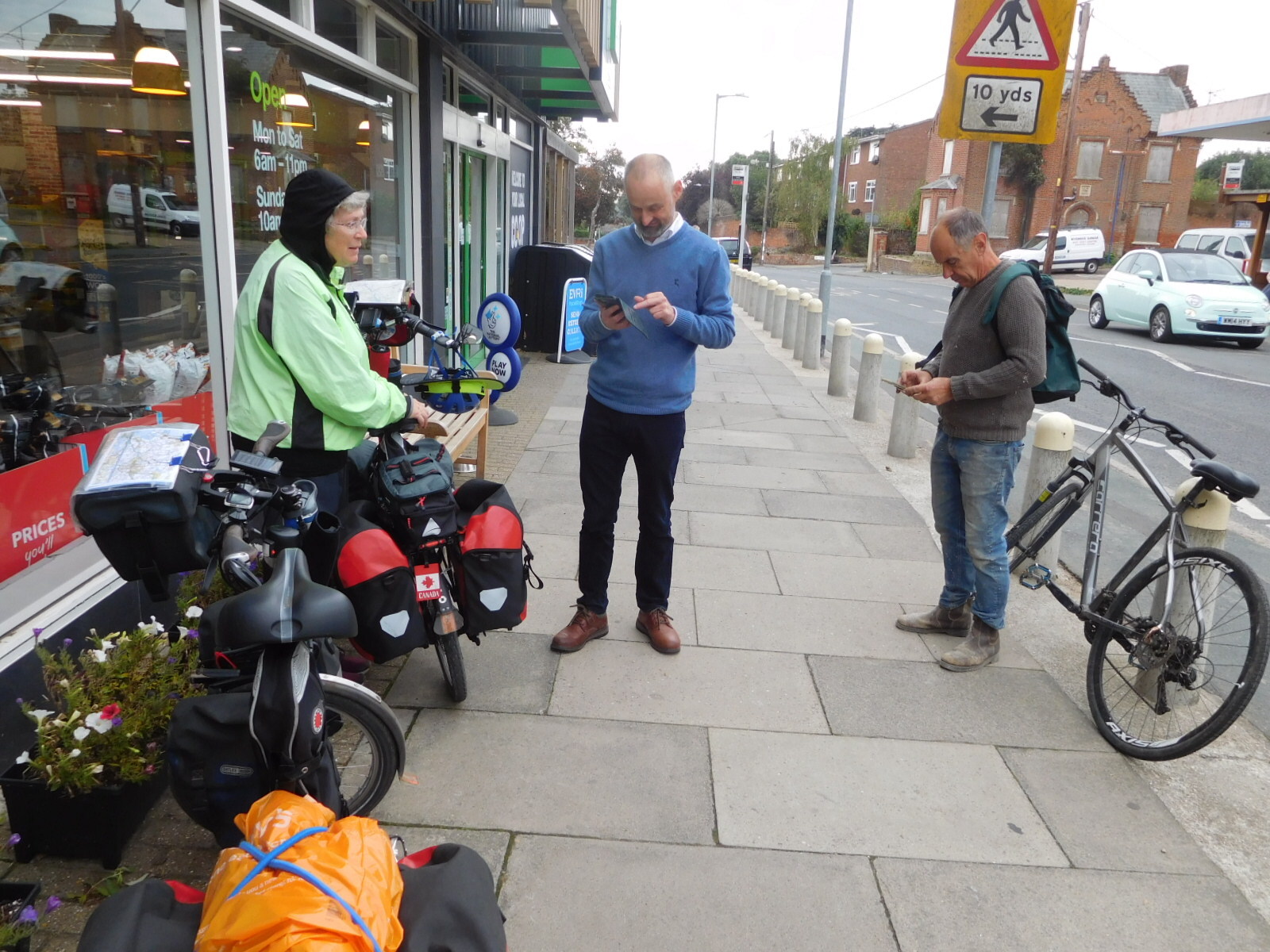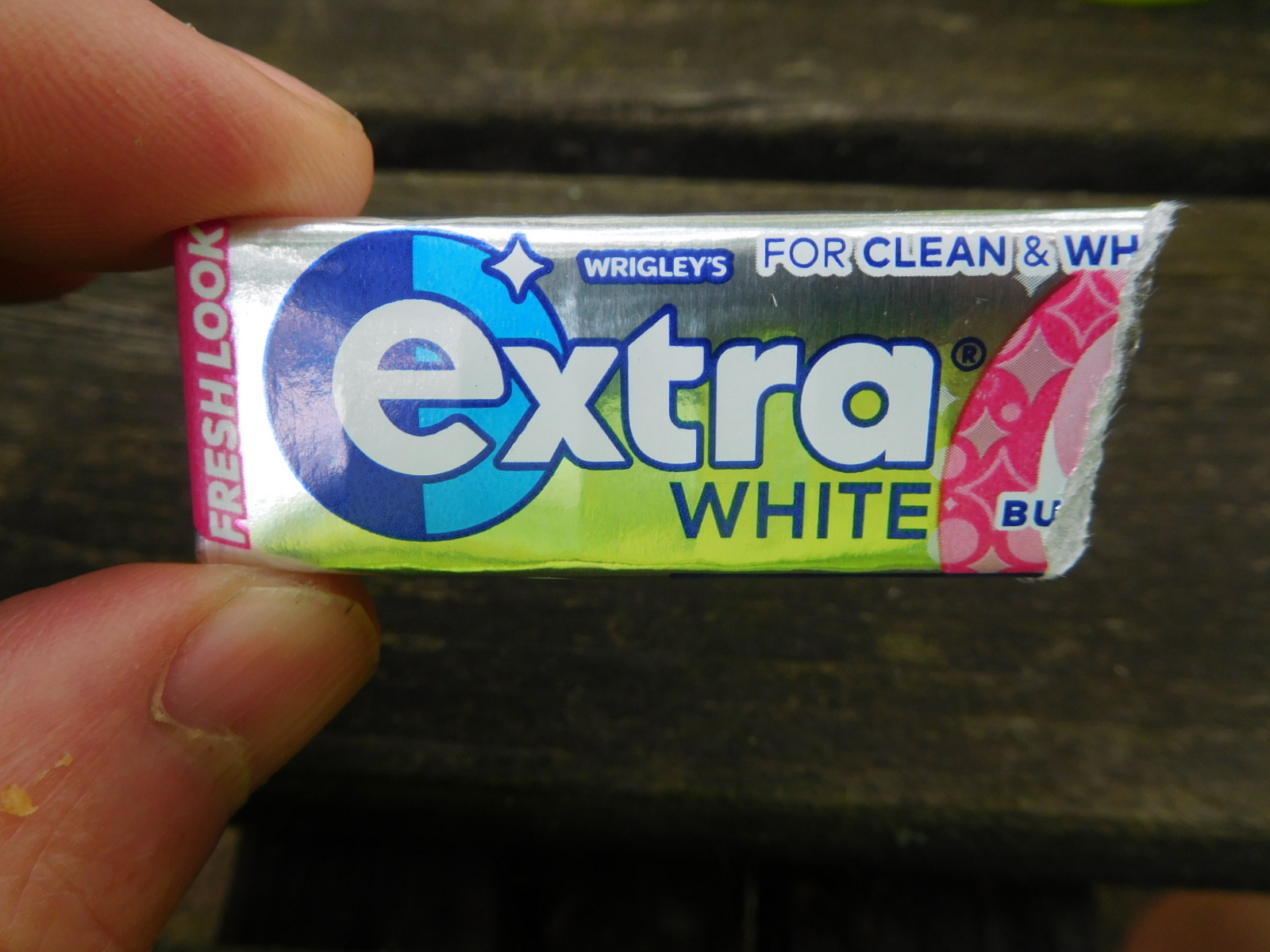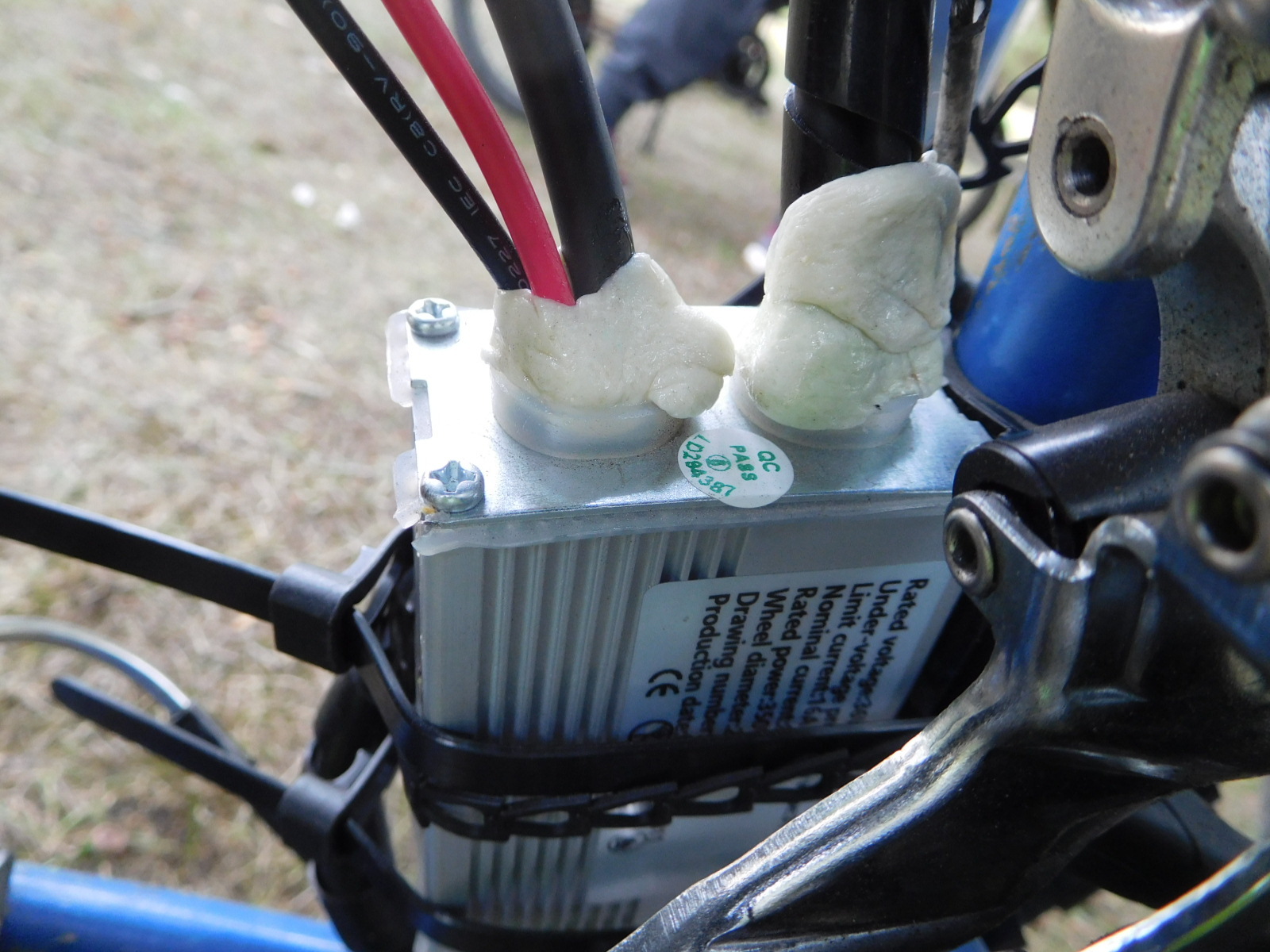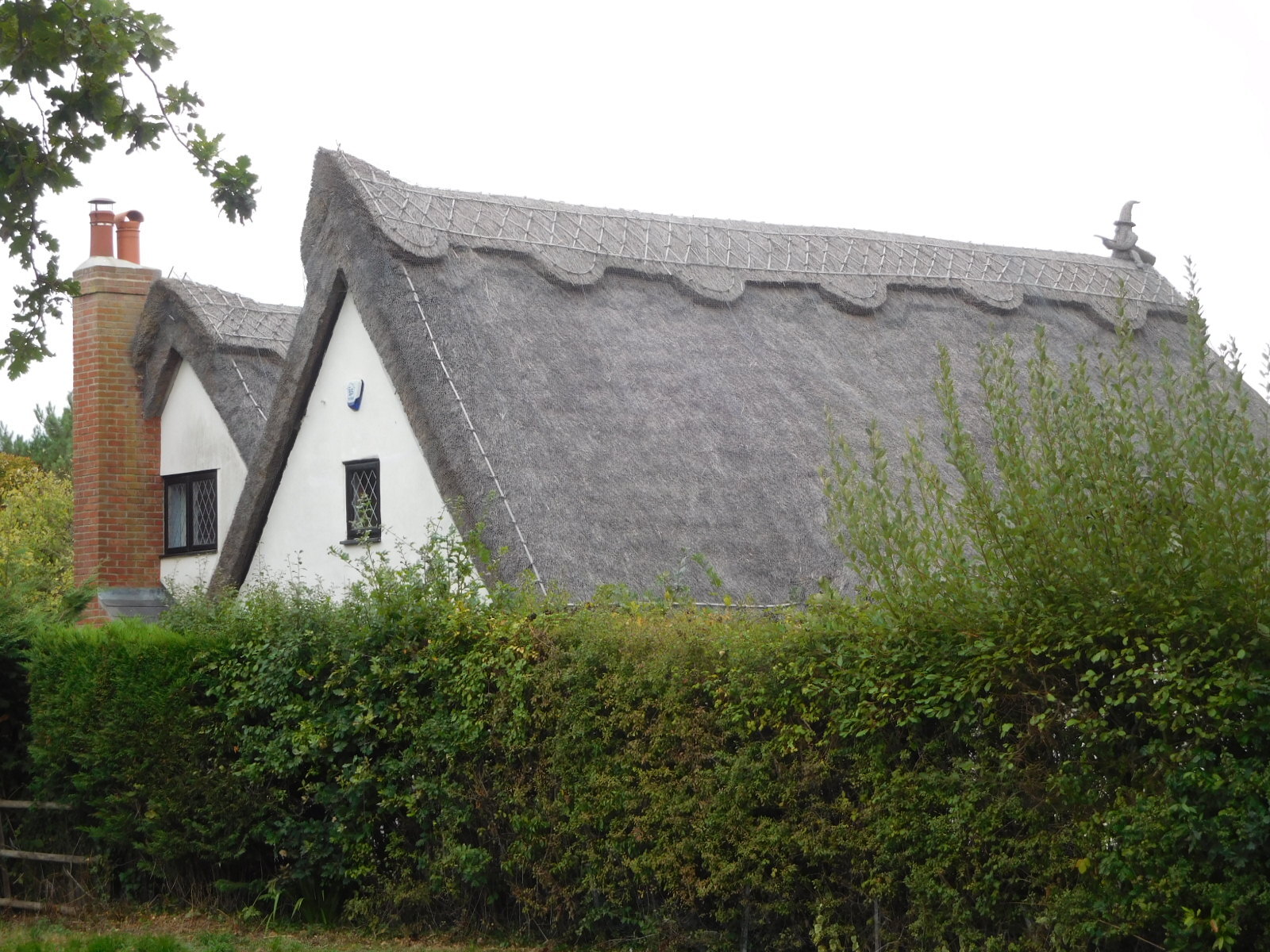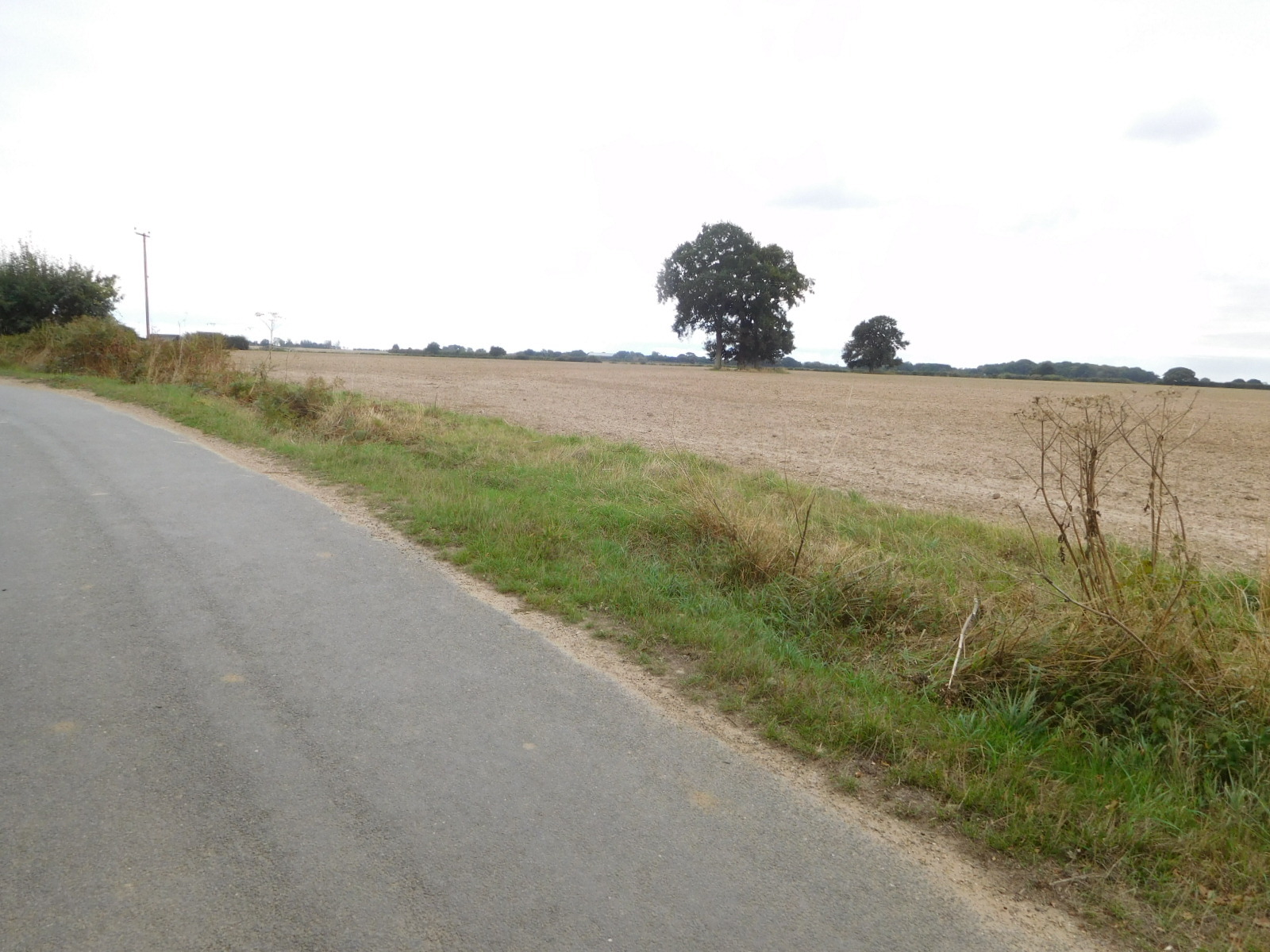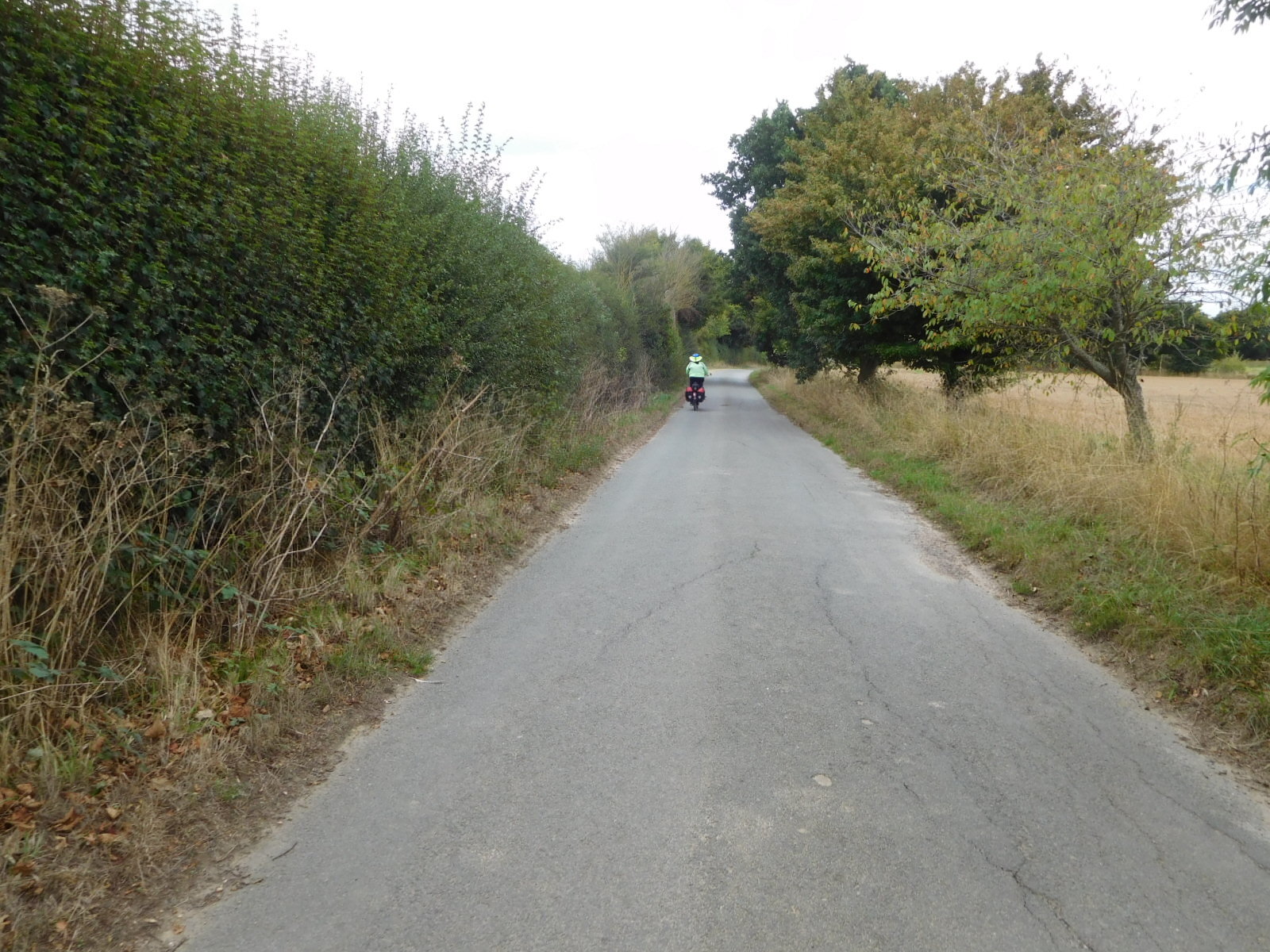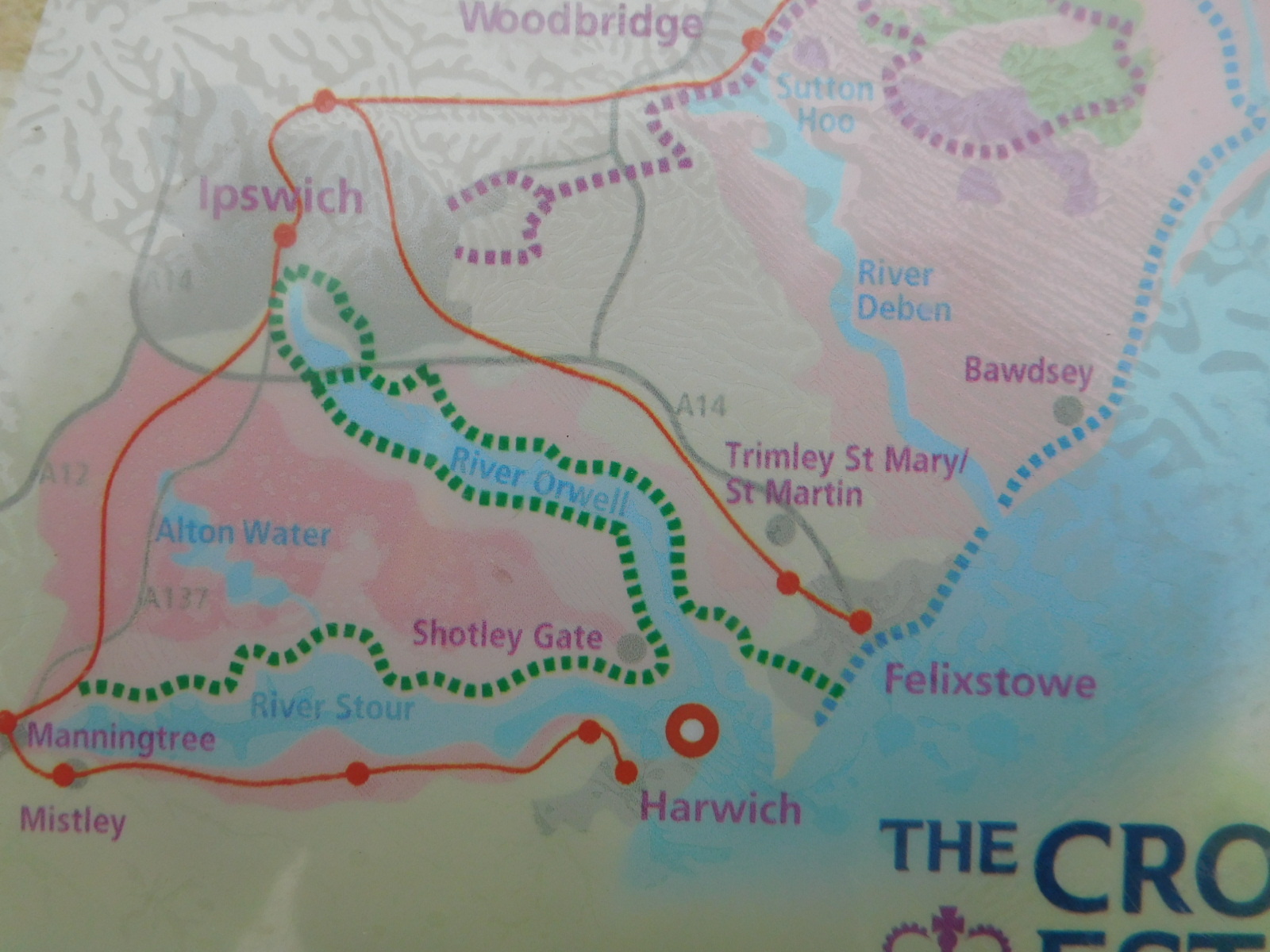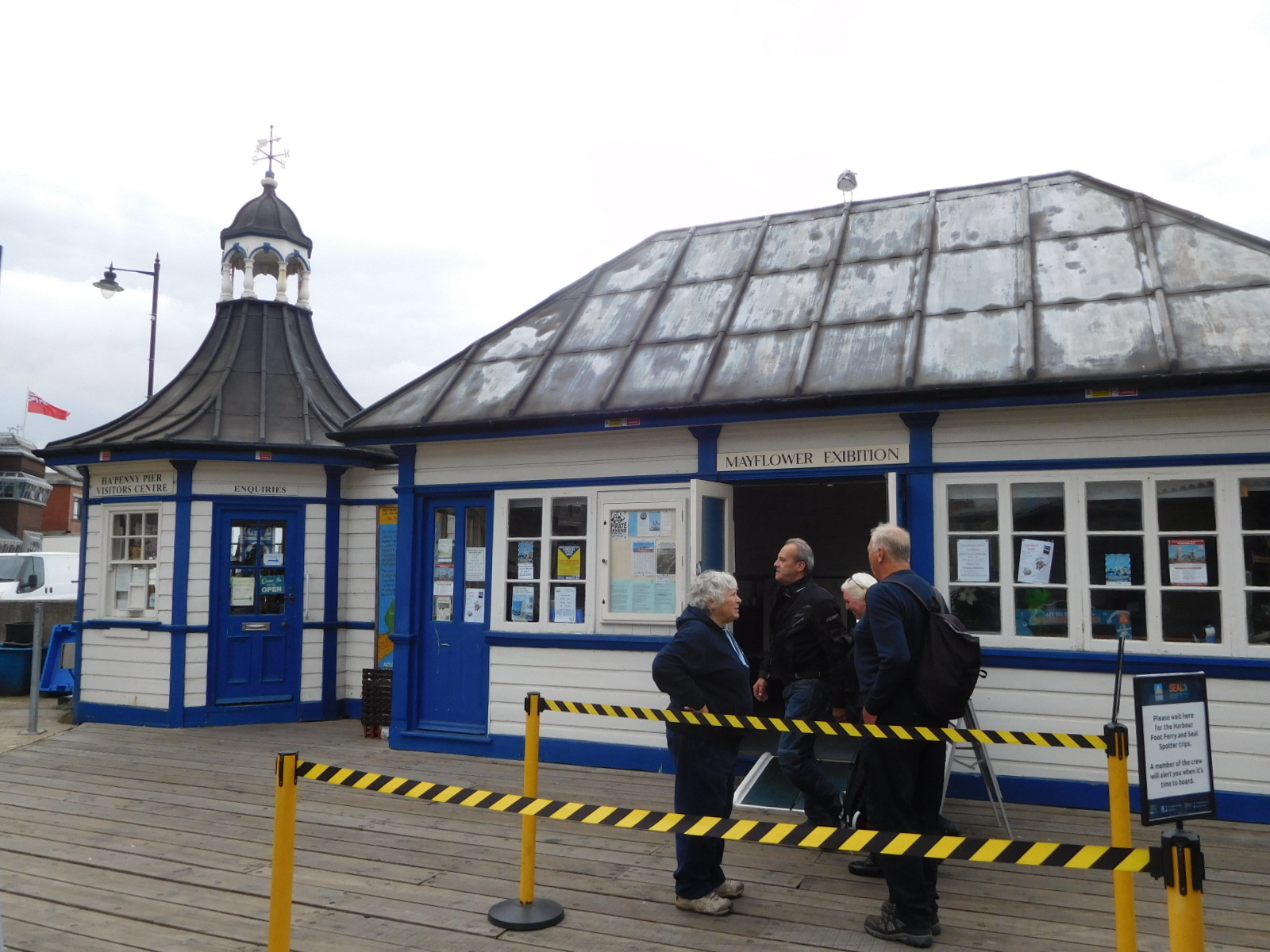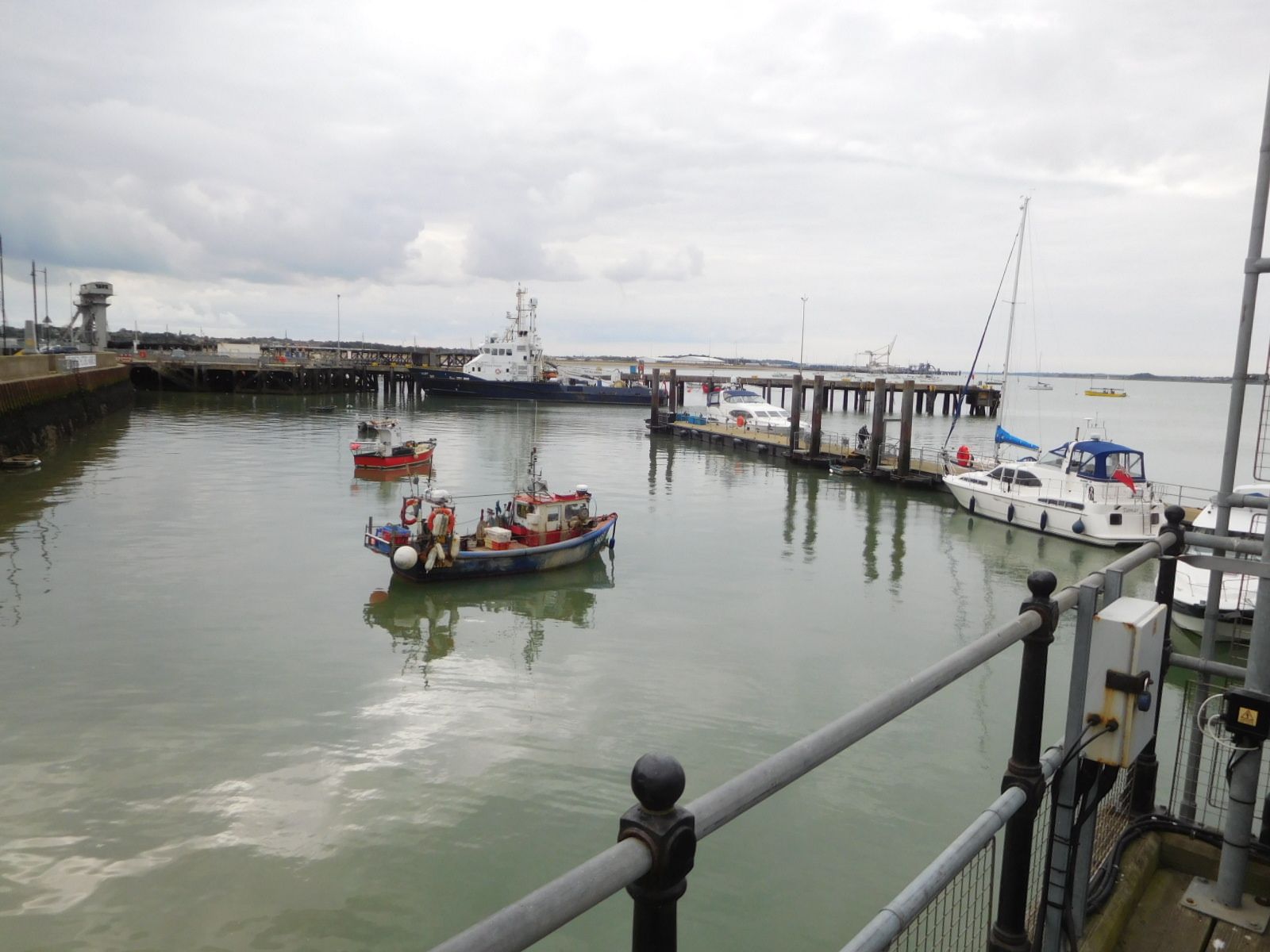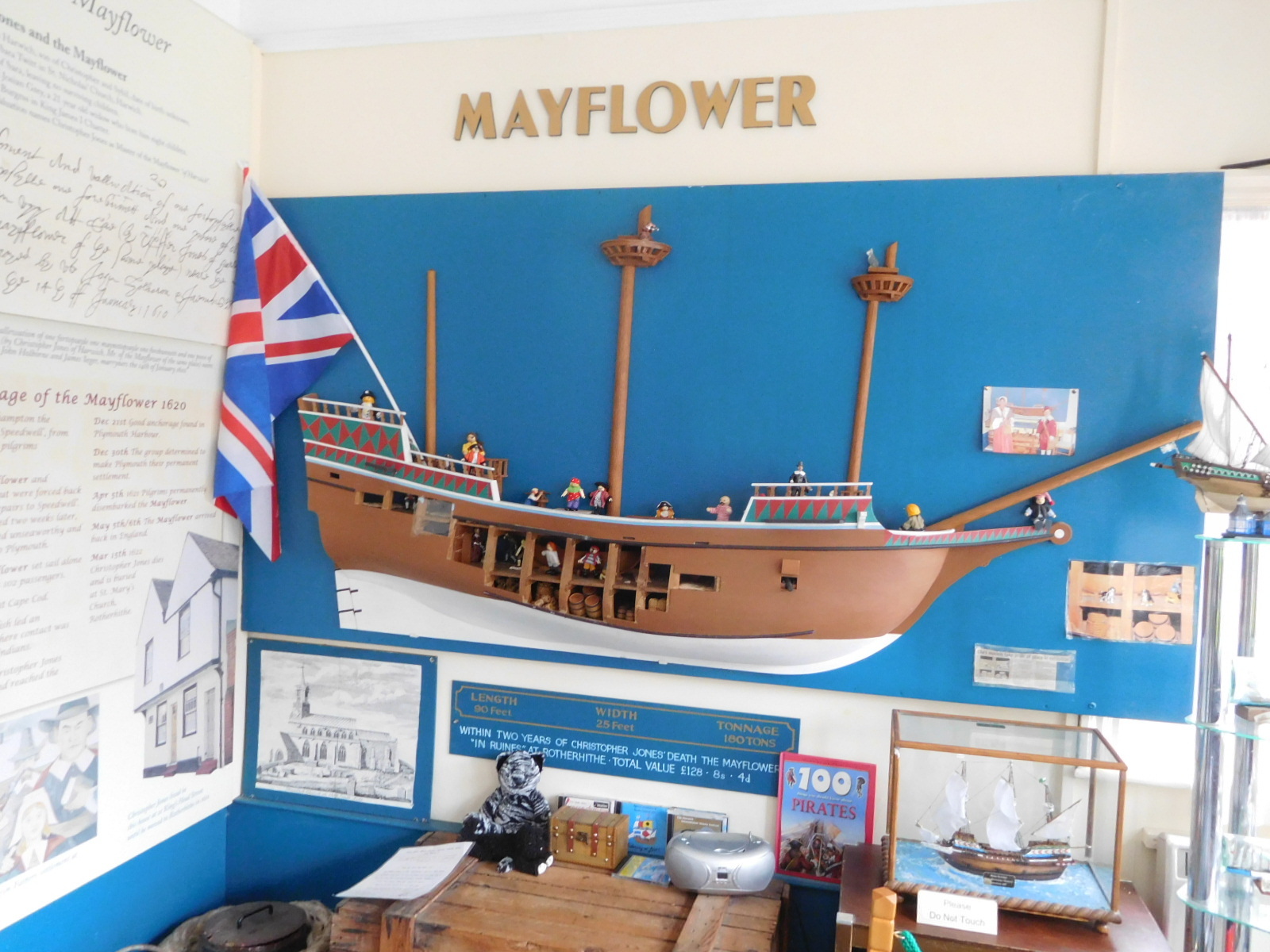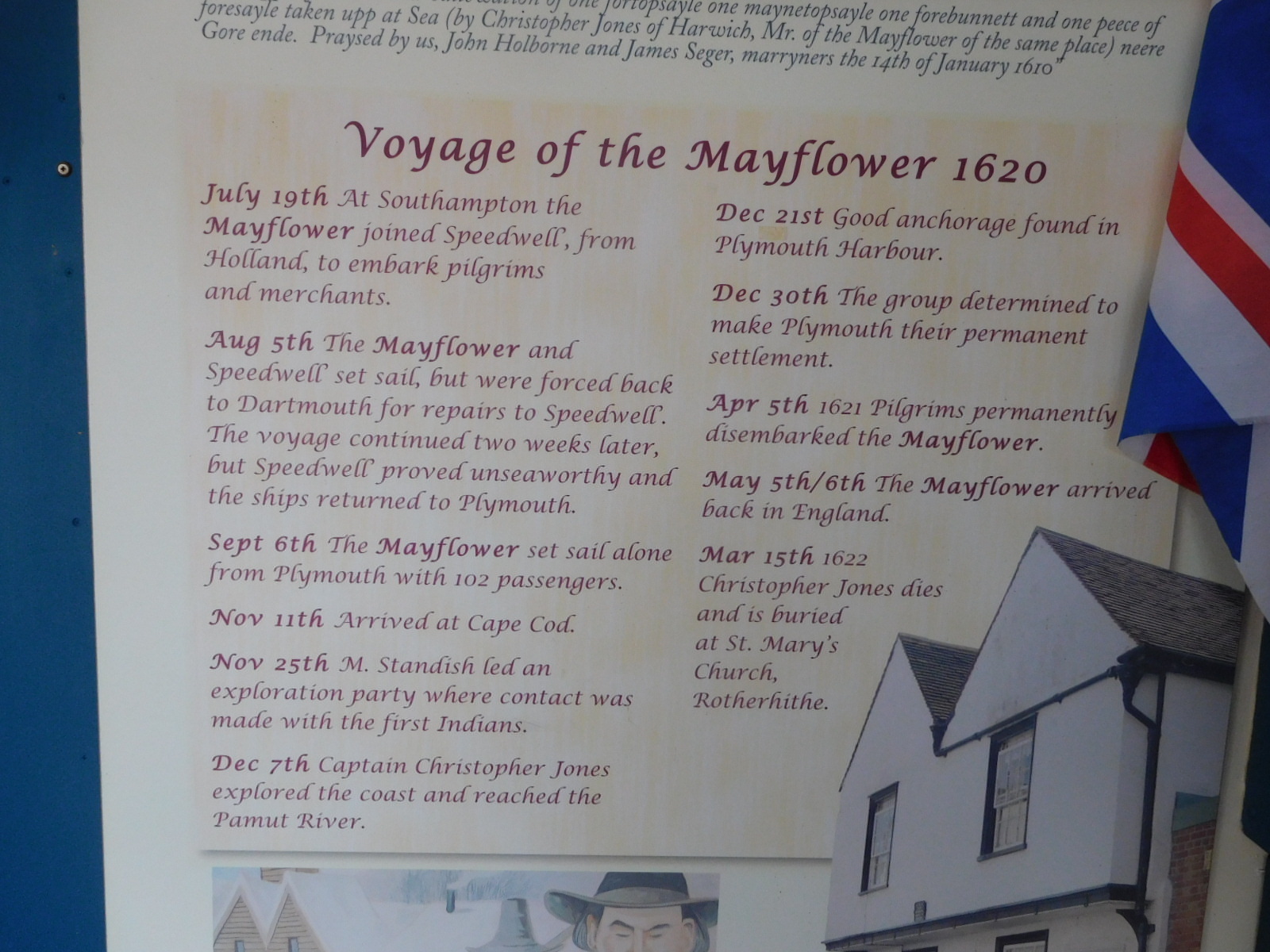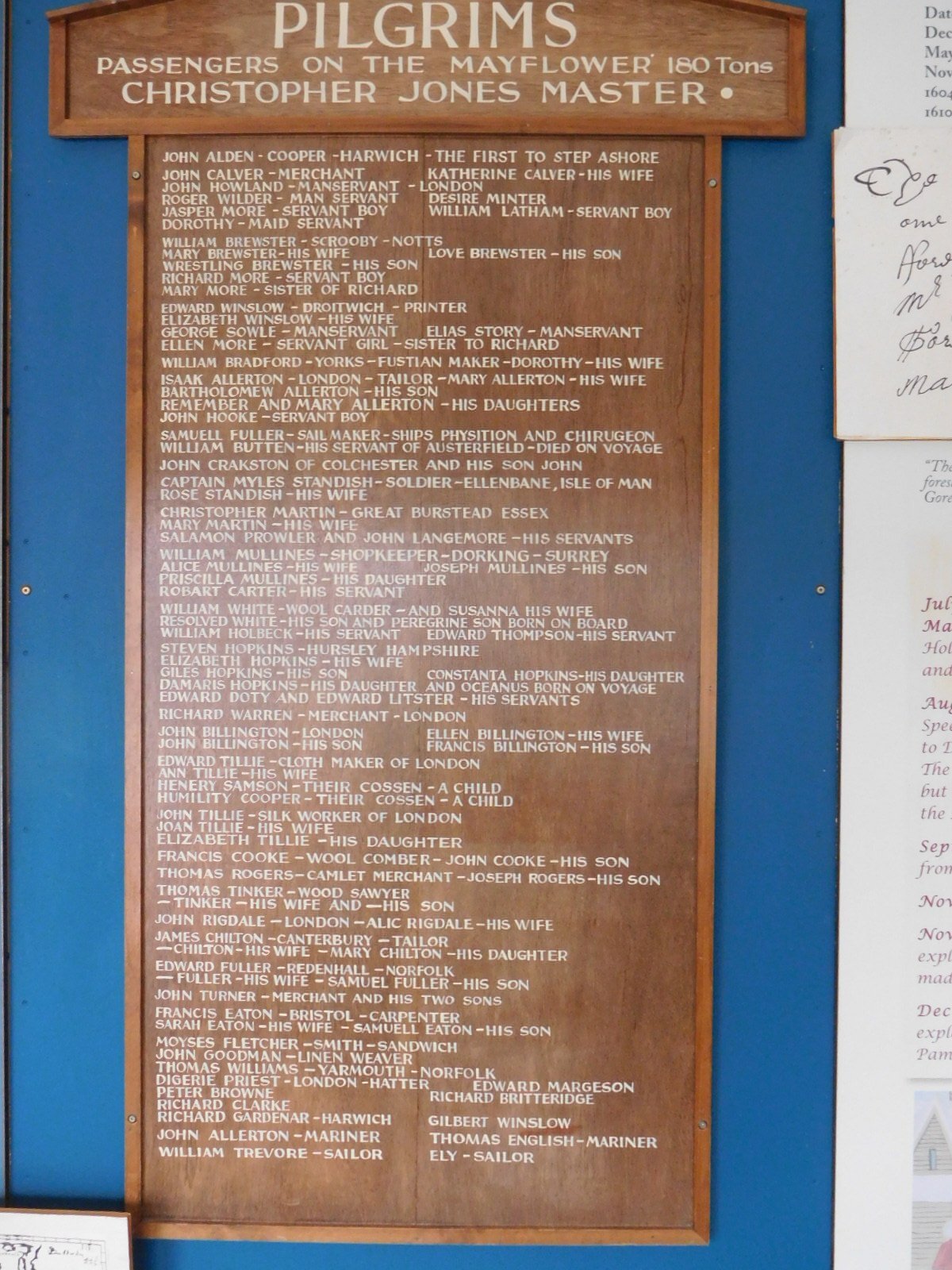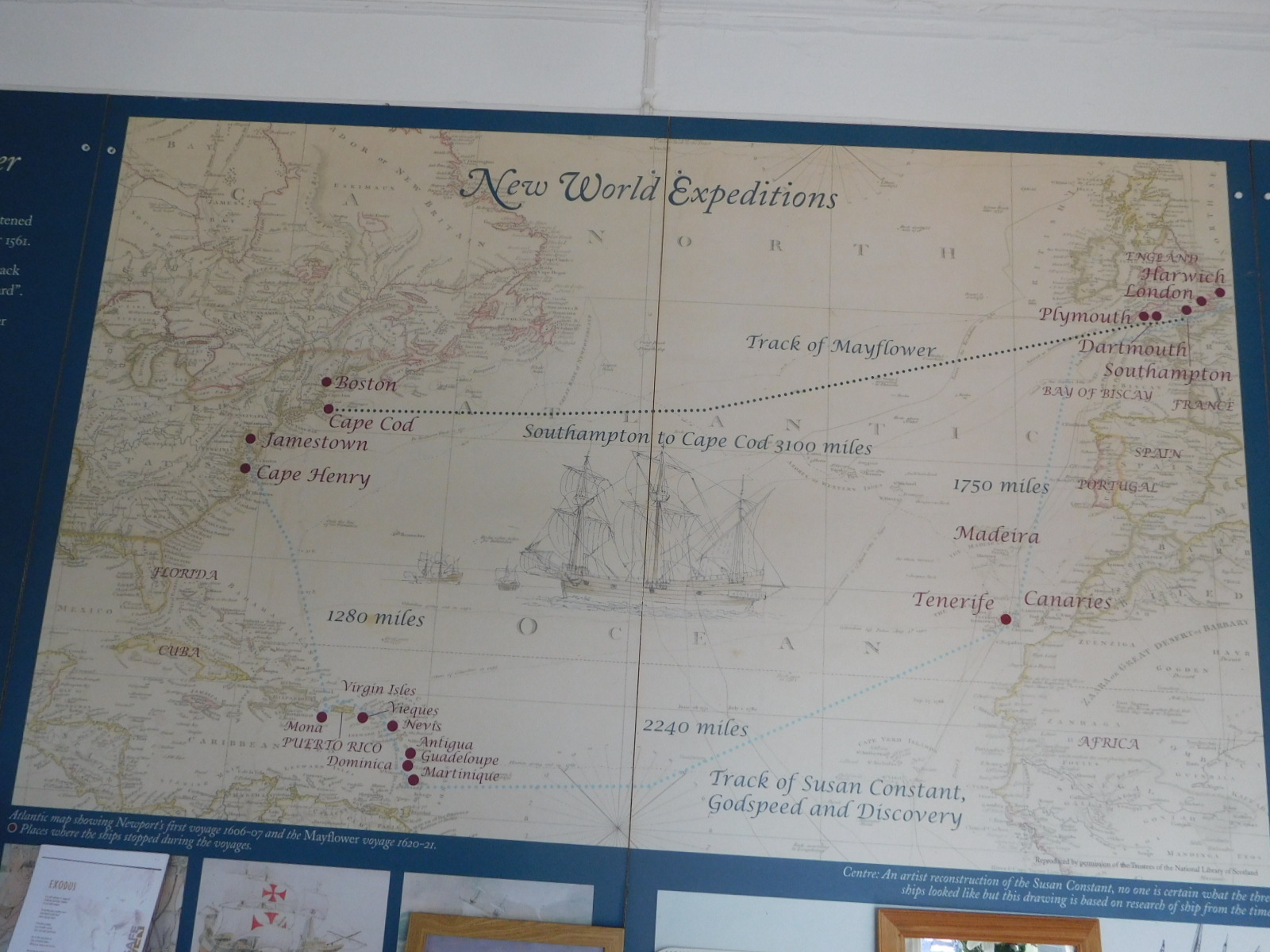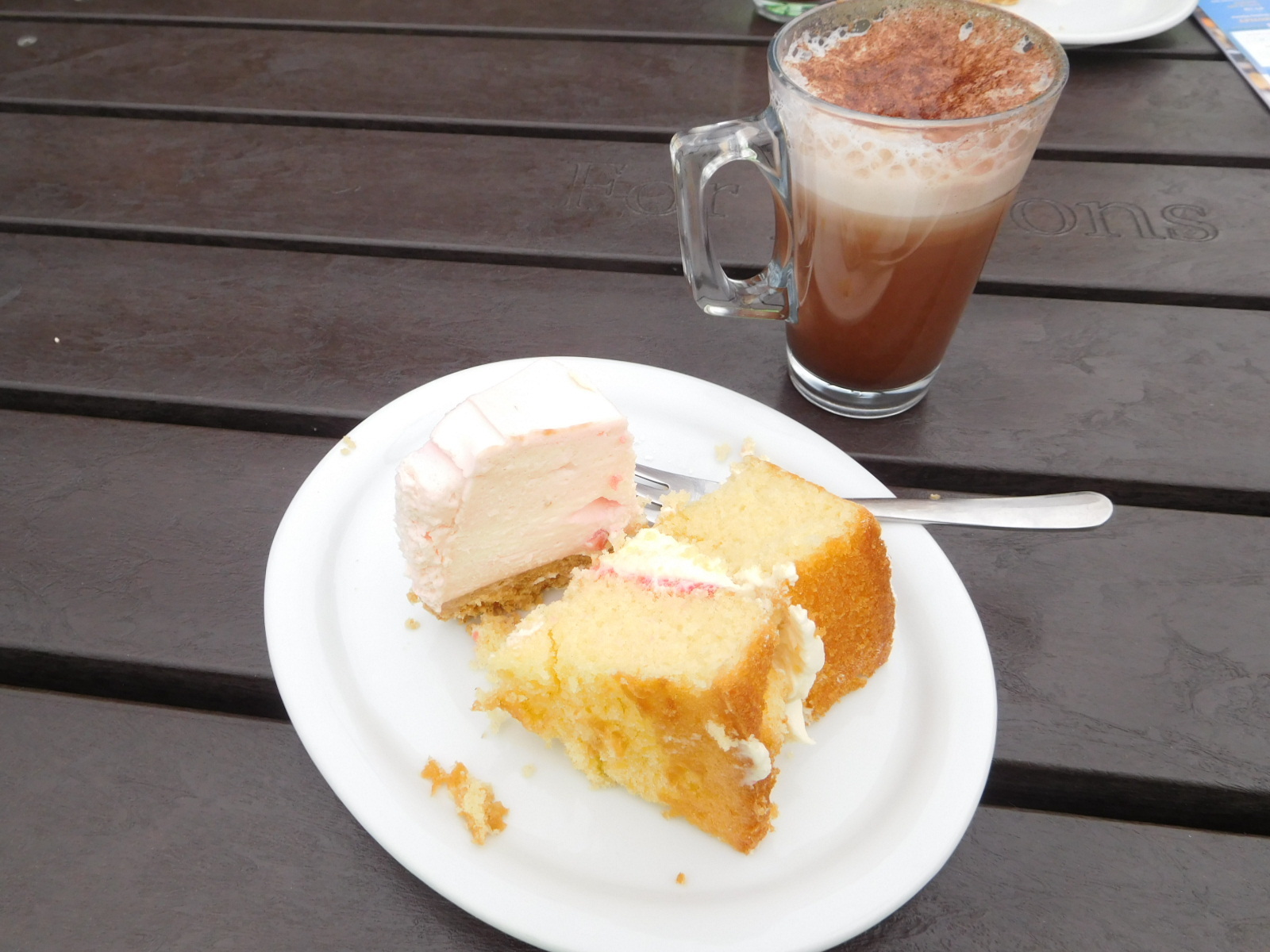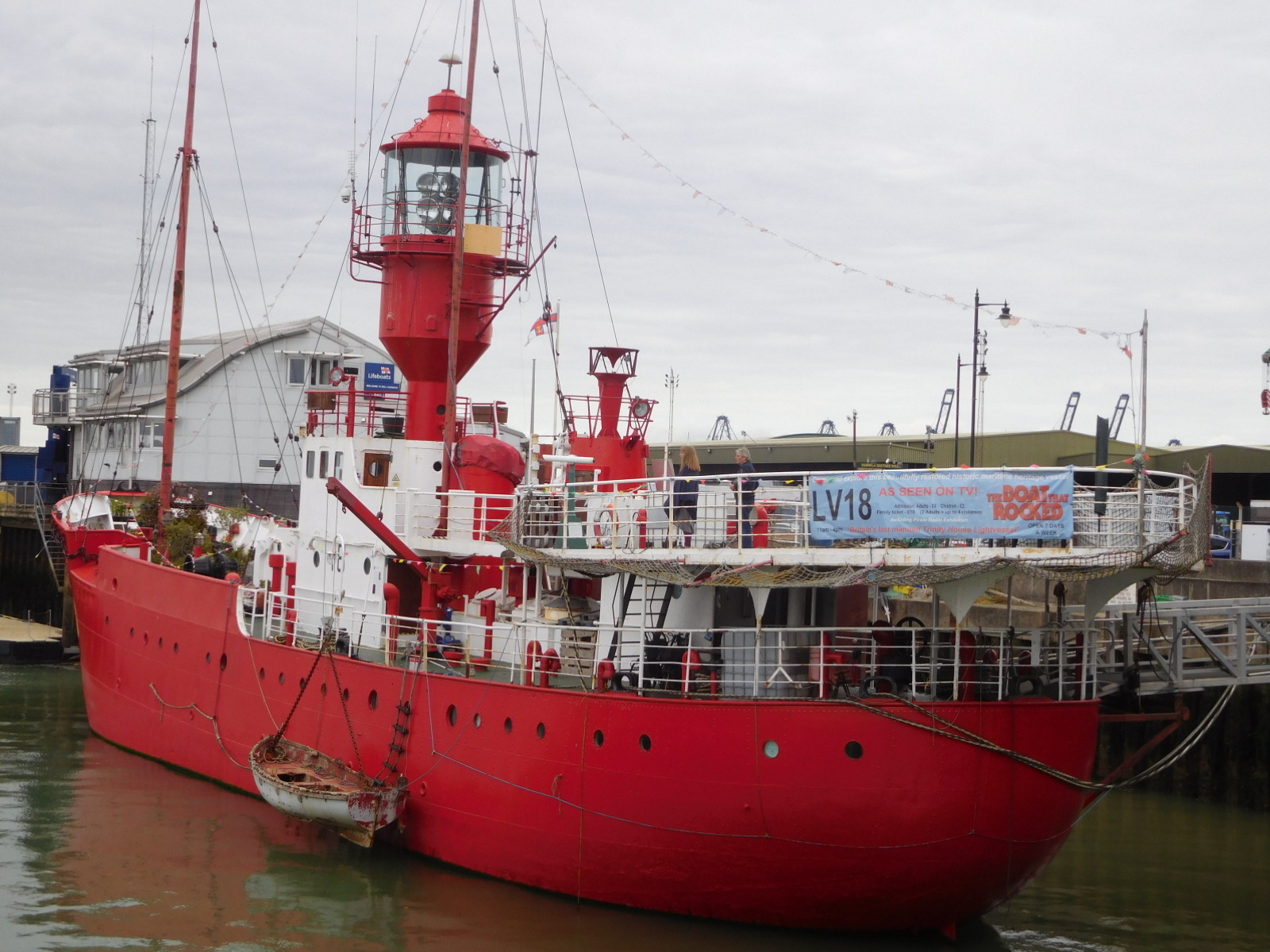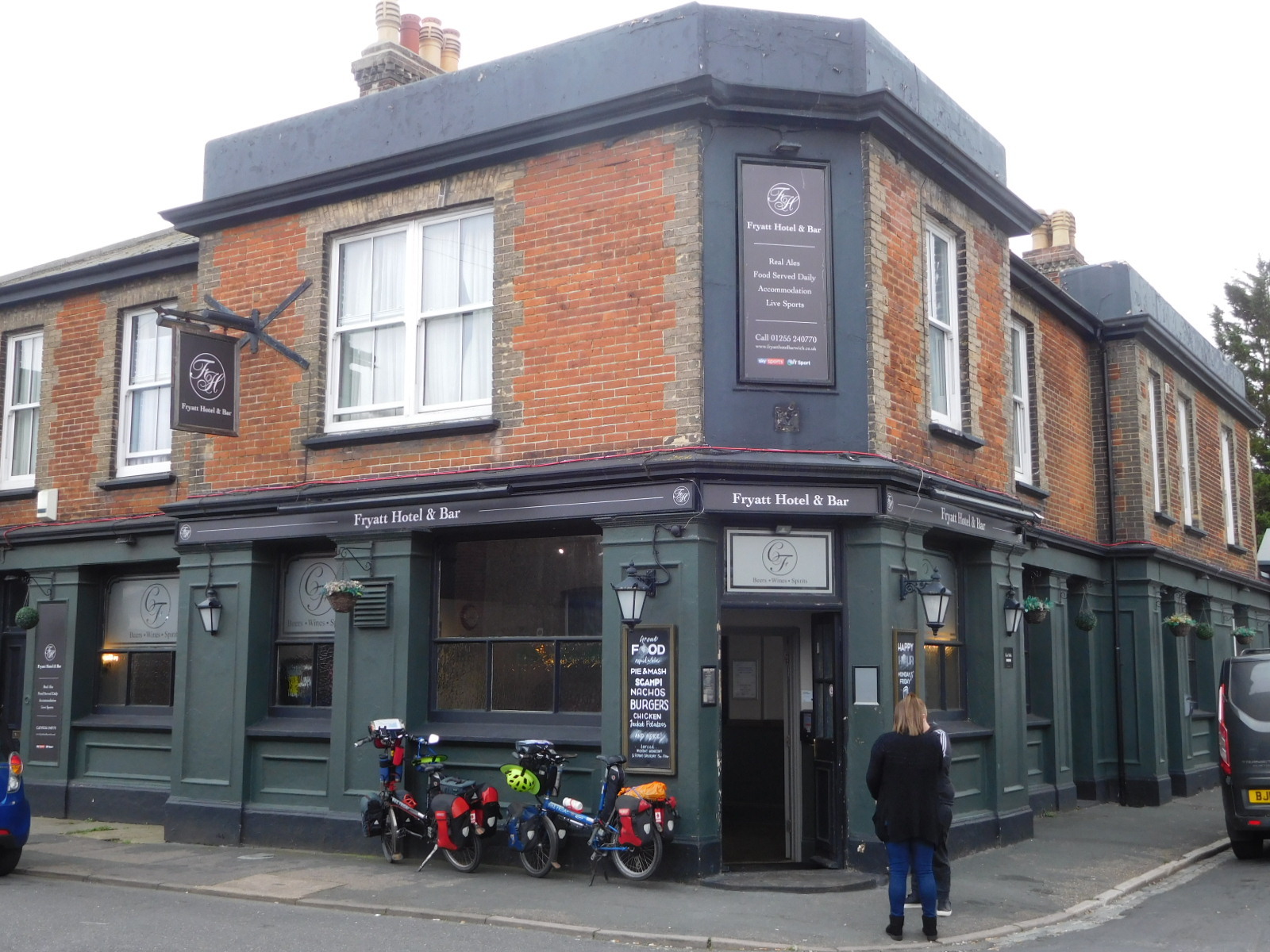September 21, 2022
Day 15: Colchester to Harwich
| Heart | 0 | Comment | 0 | Link |
We went for breakfast in the dining room of our 15th century inn, and of course the offering was the full English breakfast, from which could be subtracted any items not desired. Black pudding and sausages are on my standard subtraction list. Looking then at what came, I found myself wondering about who first got the bright idea that such items as baked beans and stewed tomatoes were supremely suited to be in a breakfast standard. Of course, it's an unfair question, because there is no right and wrong in food preferences, only differences from country to country or among regions. But baked beans - really?
At least I could feel certain that the lame sliced factory bread offering could not be a tradition over 100 years old, since Wonder Bread was invented in 1921. The web site from the English Breakfast Society goes part way in explaining the breakfast components, but of course there is still no accounting for taste. They did give me the idea that maybe I could be asking for " baked halibut steaks, fried whiting, stewed figs, pheasant legs, broiled kidneys, pulled fowl, sheep’s tongues, potted pigeons, collared tongue, kidneys on toast, sausages with fried bread, pigs cheek and Melton pork pie, as well as the more familiar pork sausages, blood sausages, and bacon made in a regionally traditional way." It would serve me right if some of these items did come out of the kitchen!
Our way out of Colchester led us past the George Hotel, with its distinctive hanging sign, and on into the Castle gardens.
In the gardens we came to a plaque explaining that Colchester was in a flat area extending from the coast and d0wn toward London, and as such they expected in 1940 that it would be on the direct route of invasion. So they put up a bunch of concrete blocks, and extended cables from one to the other - one at knee height and one at chest height - with the aim of tripping up the onrushing tanks. OK, so it wasn't Stinger missiles, but they were trying!
We also passed allotment gardens at the outskirts of town. The allotment garden is, we think, traditional here. We have seen it a bit in other countries, but not so much.
Our way followed the River Colne for a bit. This is a short 62 km river that is not a tributary of anything, but simply arises and flows to the sea. I think in French that would qualify it to be a "fleuve", whereas otherwise it would be a mere "riviere". This may be one of the few distinctions the Colne has, because it is too silted to support much navigation.
We passed next through Wivenhoe, which is a place where we almost booked for last night. We're glad we settled on Colchester, because Wivenhoe did not seem to have much to offer.
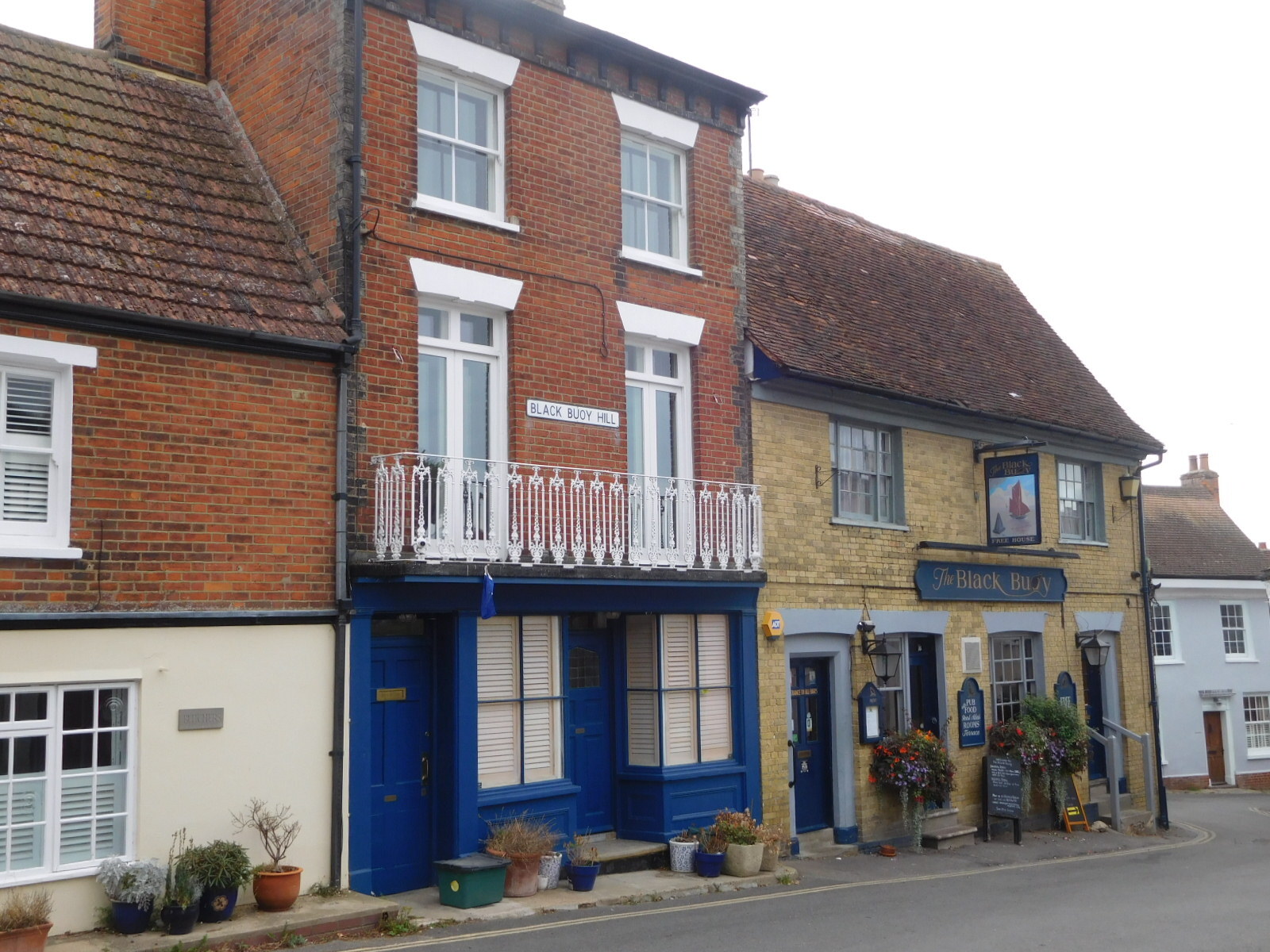
| Heart | 1 | Comment | 0 | Link |
The NCN route did its best to run us in circles, avoiding ... something .. while directing us onto rough, uphill ways. The street shown below must be one of those "unadopted" things. There are 40,000 unadopted roads in the UK, a terrible idea.
We continue to notice that while UK housing is not horrible, buildings can be rather small, with little yard space, and not super maintained. Wivenhoe gave us the impression this way, of a not very wealthy community.
We did find a small "Coop" grocery store, with with products that were very nice, like little lemon cheescake puddings, and local apples (of a variety new to us).
Whenever I am stationed outside a grocery store with the bikes, I attract people eager to ask the usual questions about what we are up to. Quite a few of these in England want to discuss the difficult conditions for cyclists. Outside the Coop I encountered a local baker who was also a cycling activist. Soon a friend came along, not a cycling activist but a carpenter, on a bike. These two chatted for a fair while, vicariously experiencing our trip. We set them up with a link to this blog, so they will be able to follow along and see how it turns out.
One thing the Coop has was chewing gum. This was not the desirable pink "Double Bubble" , but some artificial sweetener laden thing from Wrigley's. No matter. Lacking silicone caulking, our idea was to chew the gum up and use it to seal the top of my e-assist controller before the next rain. The thing seems to have dried out, and for all of today it worked normally! This has been great, since Dodie has still got all the weight, and I have been flying along on my assisted but unloaded bike. Dodie deserves credit for picking up the load, but tomorrow I suspect I will again be pulling my own weight! (Meanwhile, there has been no answer from the controller company to my impassioned appeal for help. It will be good if it turns out I do not have to depend on them.)
The countryside continued without any too spectacular scenery, but there was at least one thatched cottage, the kind of narrow but quiet roads that seem to work ok for us, open, harvested fields, and just a little in terms of orchards.
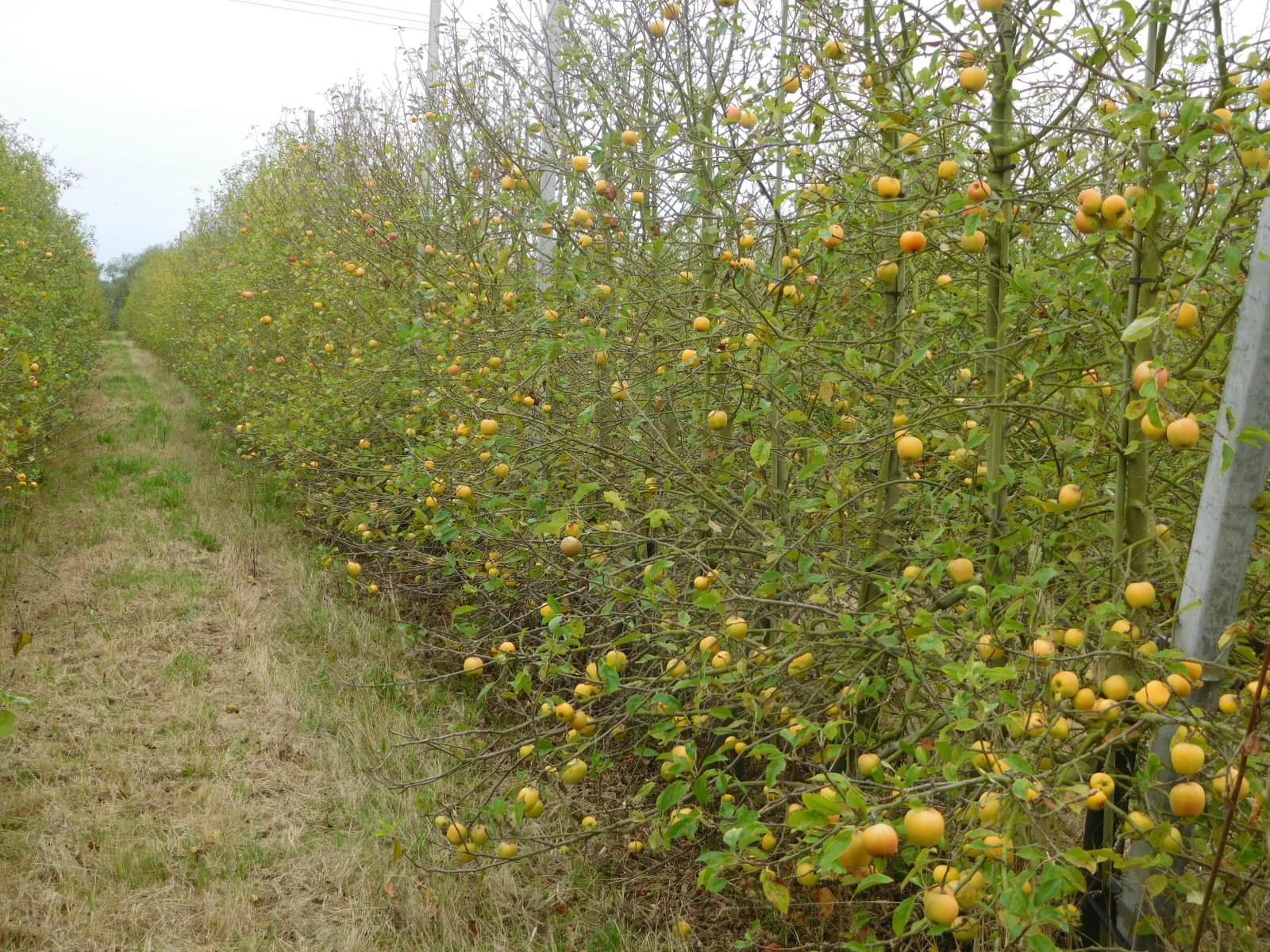
| Heart | 2 | Comment | 0 | Link |
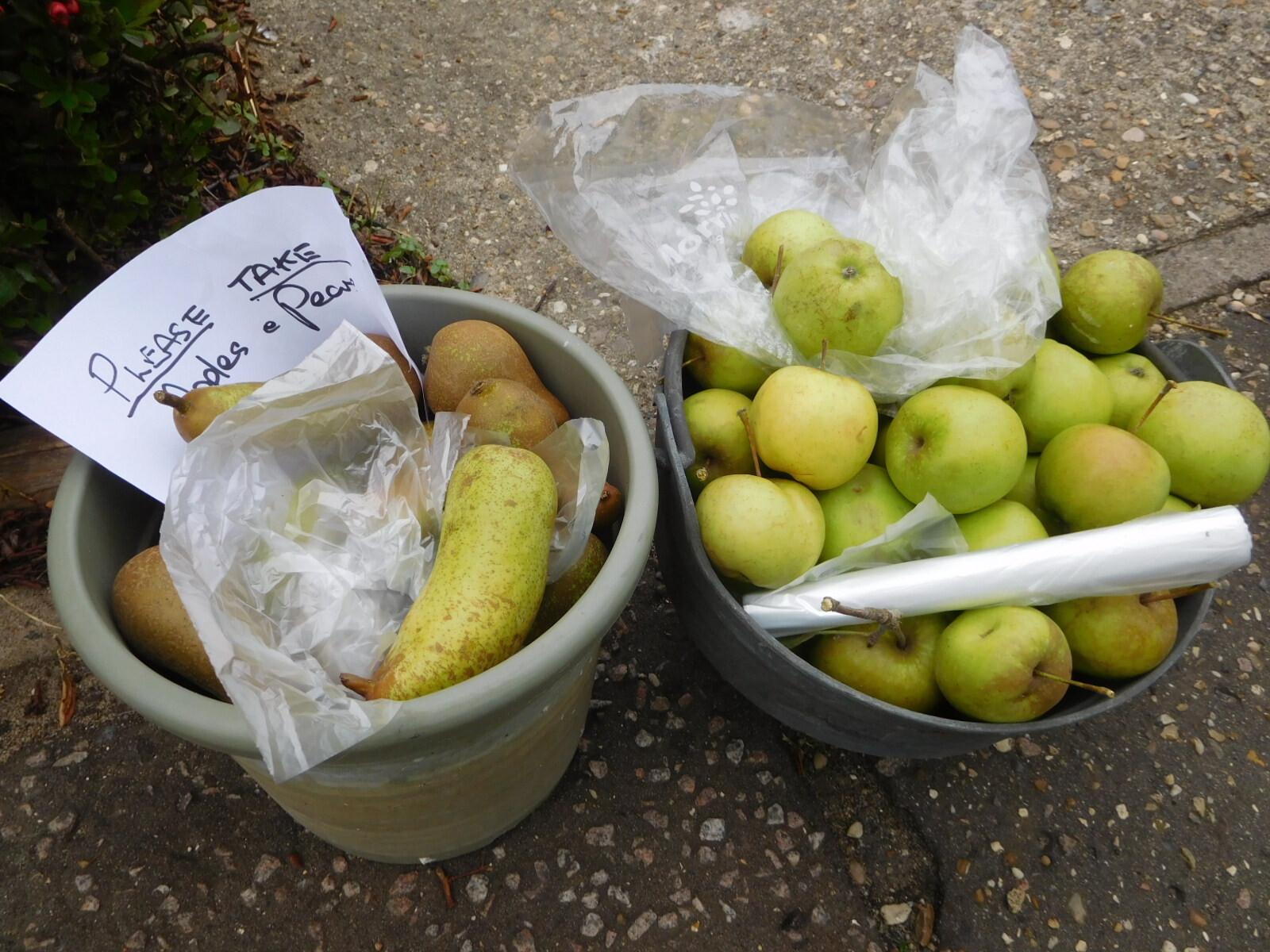
| Heart | 4 | Comment | 0 | Link |
The town of Harwich, our destination for today, is a major shipping port, sitting on a peninsula in the large estuary of the river Stour. It is just across the way from another port, Felixstowe.
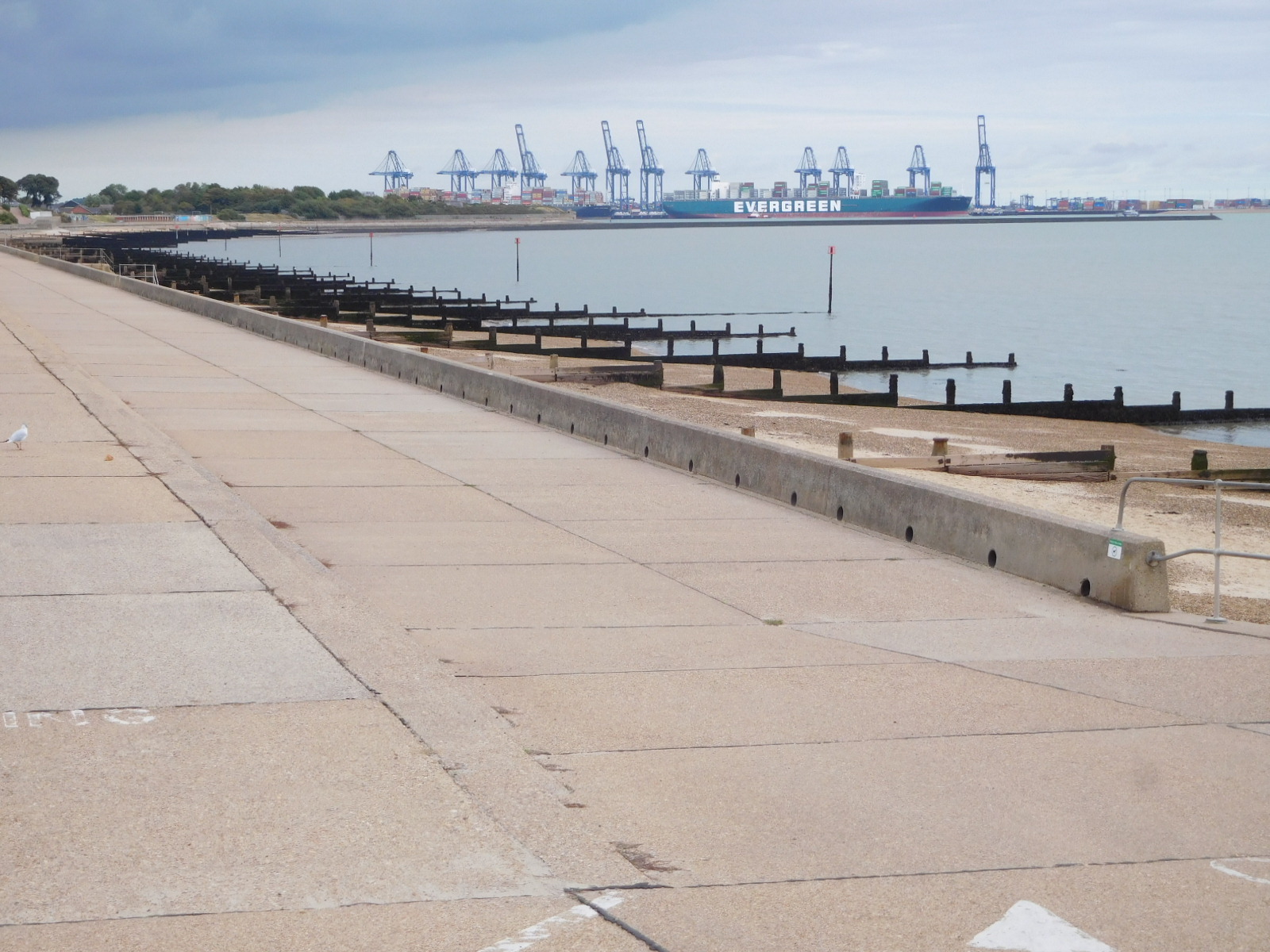
| Heart | 3 | Comment | 0 | Link |
To continue our journey, we need to cross over to Felixstowe, and then to proceed to Ipswich, and soon to Cambridge. The crossing is done on a little passenger ferry. We somehow only planned to get on the ferry tomorrow, but we still pedaled over to see what it is all about. The ferry leaves from a pier that has been there since the 1890's, and is called HaPenny Pier. At the pier there is a little restaurant, and a ticket office with a small display about the Mayflower.
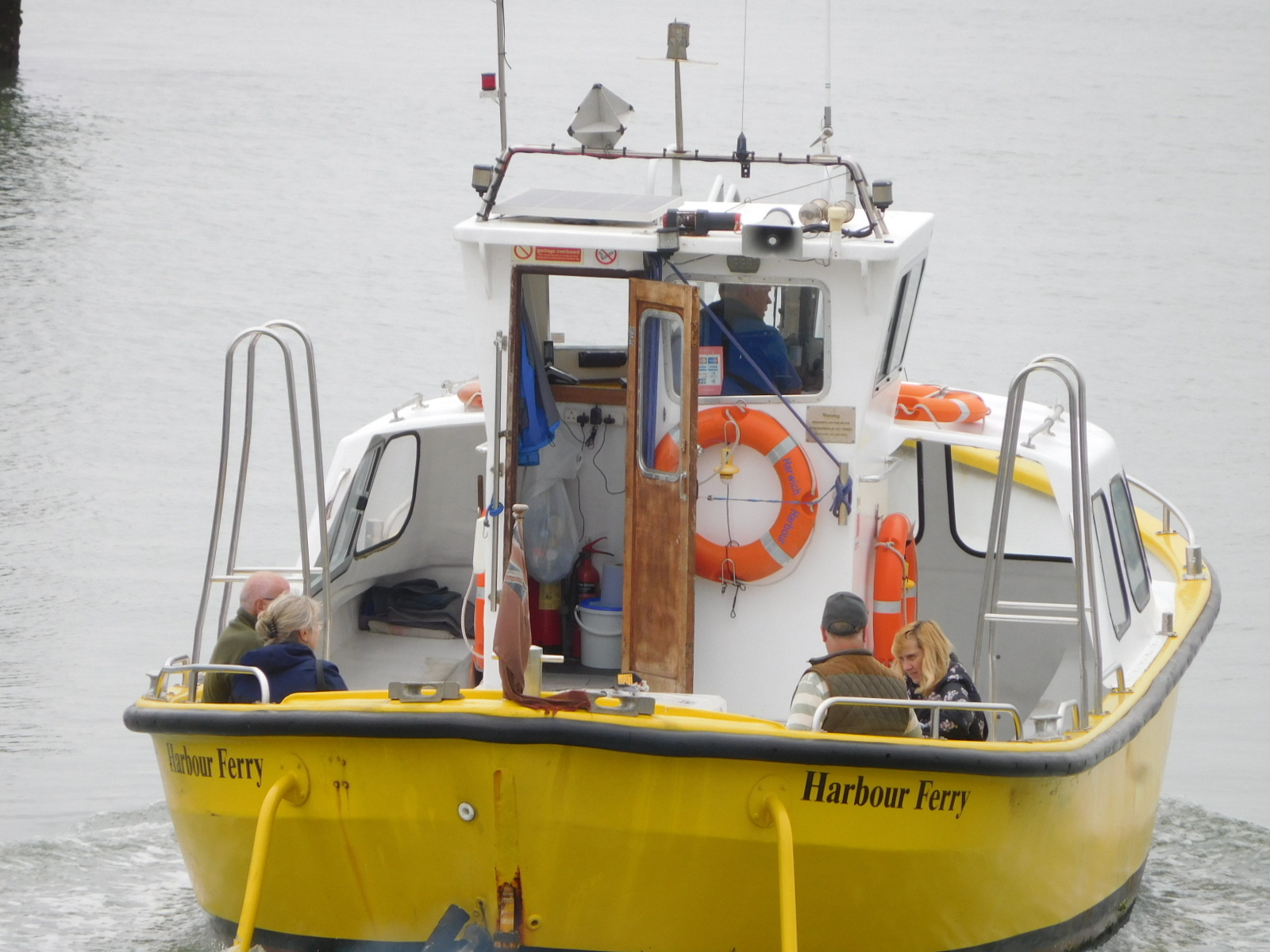
| Heart | 4 | Comment | 0 | Link |
I stopped in to the ticket office, that also had the Mayflower display, and asked what the link was of Harwich to the Mayflower. It turns out the boat was built near here, and also the captain and crew were from here. The Mayflower started its journey from Southampton, where it had a rendez-vous with the Speedwell, which had brought passengers (pilgrims) from Holland (Leiden). Both ships set out for America, but the Speedwell developed a leak, and both had to return. Mayflower took on some Speedwell passengers and set off alone. The delay ran Mayflower into bad weather and it was damaged at sea. Somewhat repaired, it limped to Plymouth, and as they say, the rest is history.
While the lady in the Mayflower display was telling me this extended story, Dodie had ordered "tea" at the little restaurant. For us this means hot chocolate and cream cakes. It was great sitting out on the pier and absorbing the ambiance. Nearby was a "lighthouse" ship, the last of its kind. This one was launched in 1958 and retired in 1994. Lighthouse vessels like this are still out there, but they are all unmanned and automatic.
We found our way to our "pub" for the night, deep in Harwich. This is definitely a working town, and our room at the back of the pub reflects that. By moving the few bits of furniture around, we managed to fit the bikes in with us, to make a place where I could type on this computer, and to have a place for Dodie's glasses beside the bed. It was actually a bit of Tetris that we did not perfect until a little later in the evening.
Today's ride: 45 km (28 miles)
Total: 491 km (305 miles)
| Rate this entry's writing | Heart | 10 |
| Comment on this entry | Comment | 0 |
